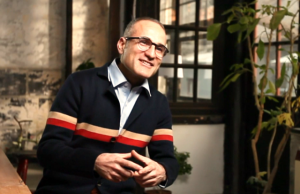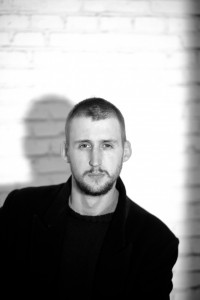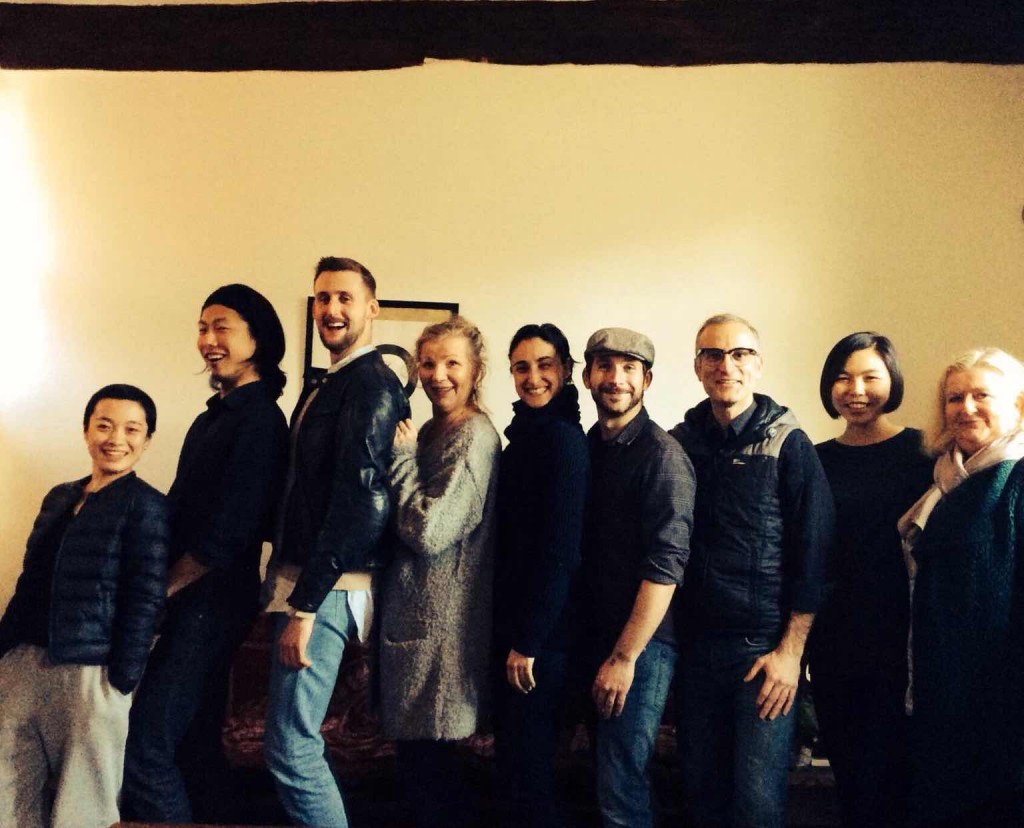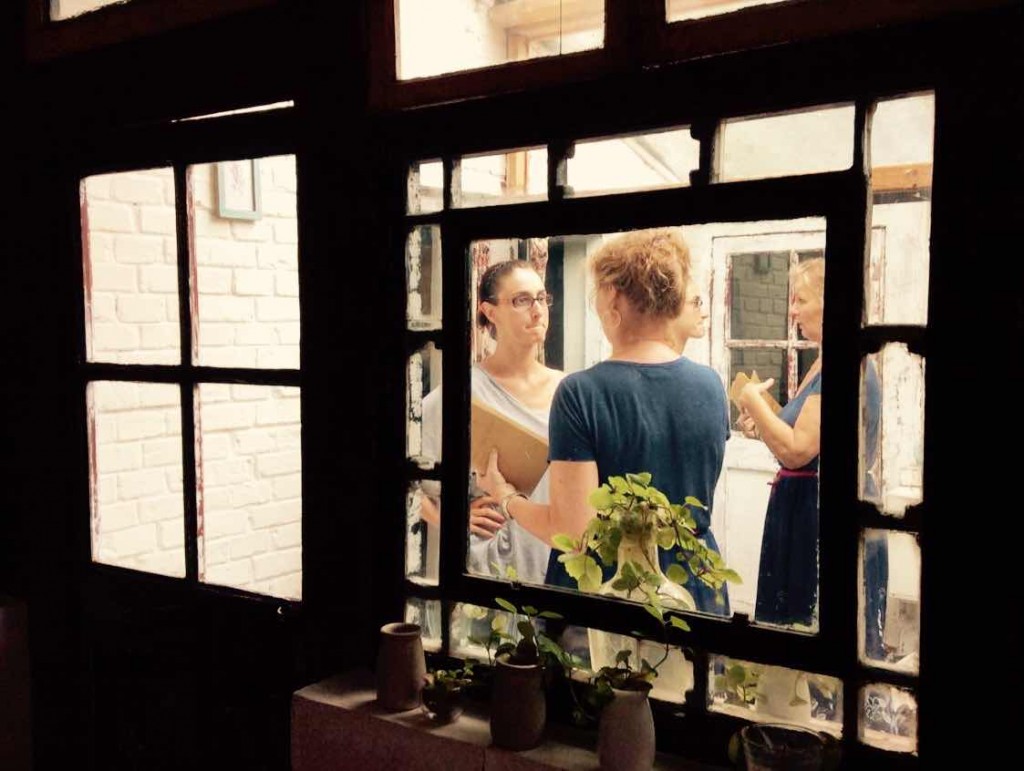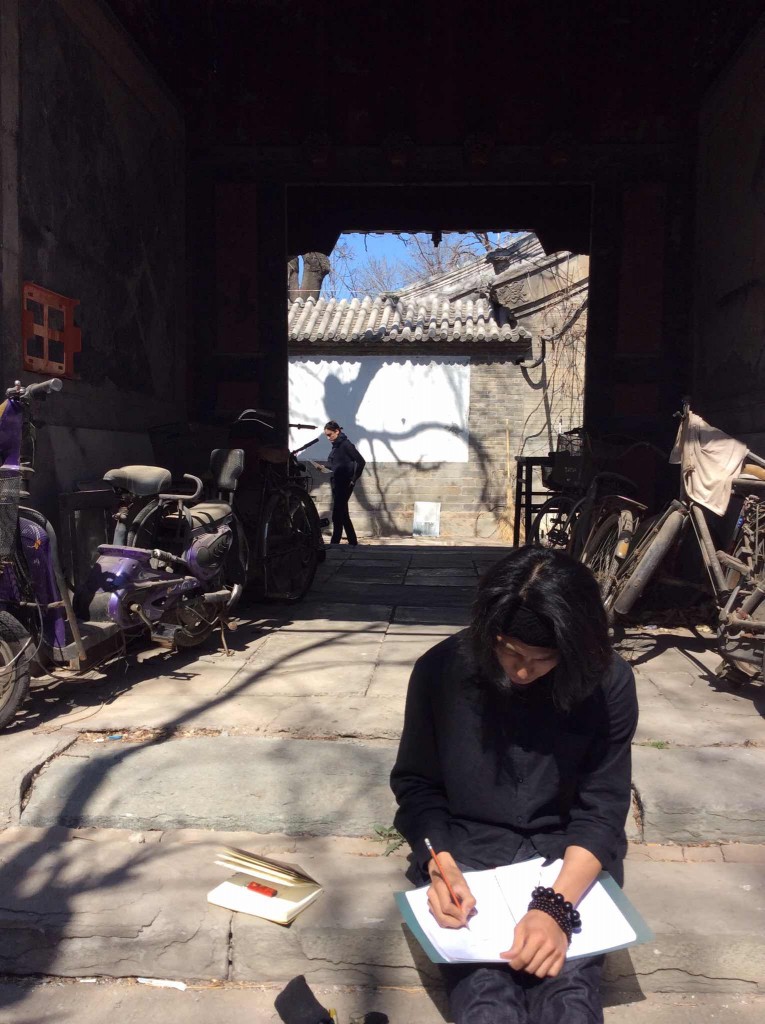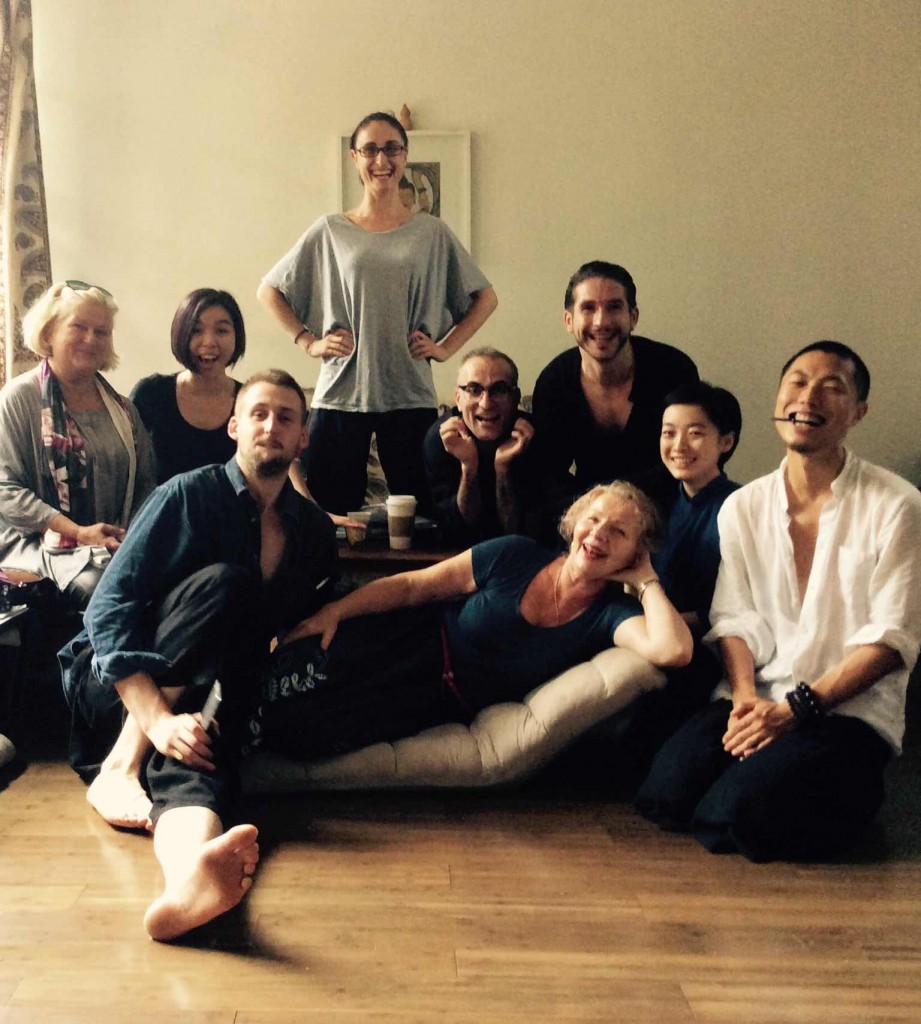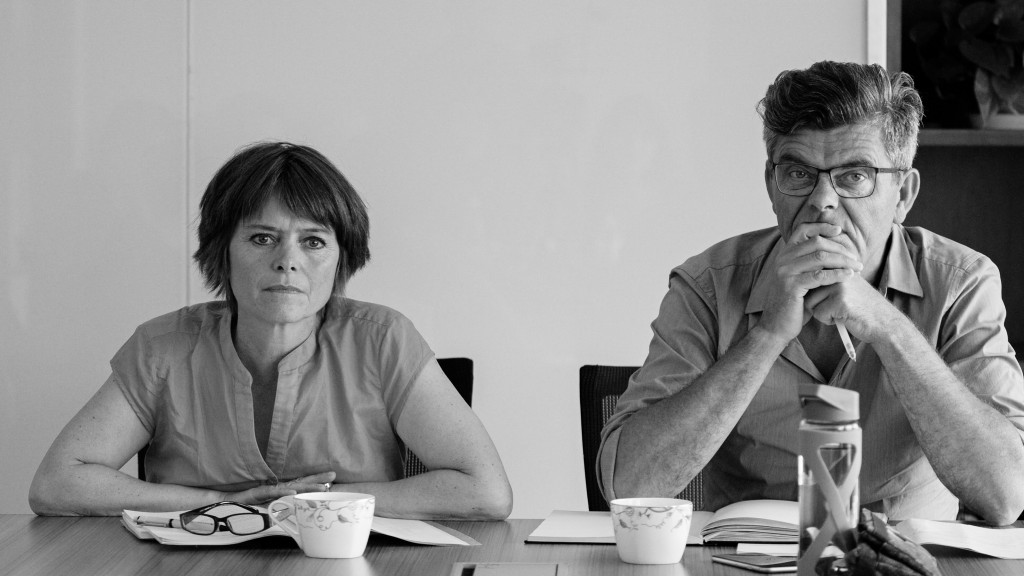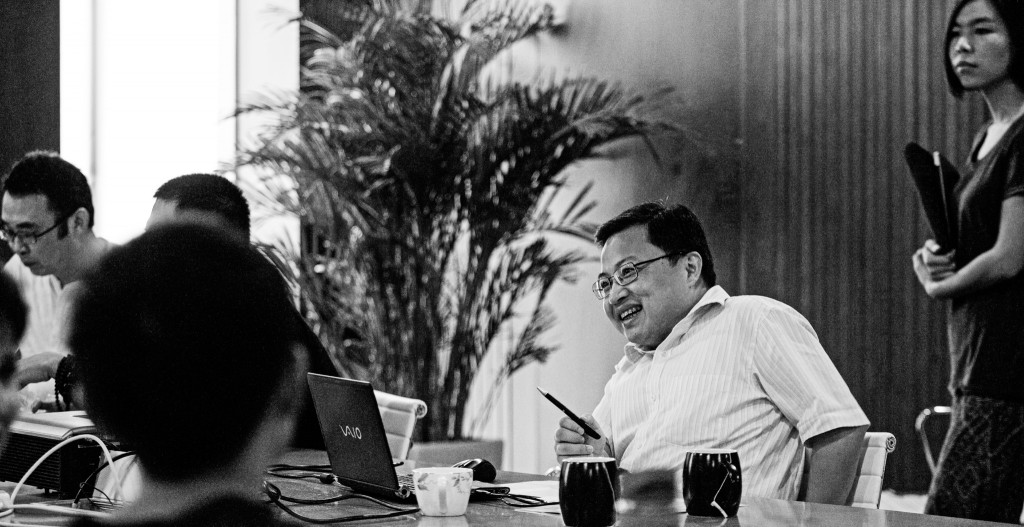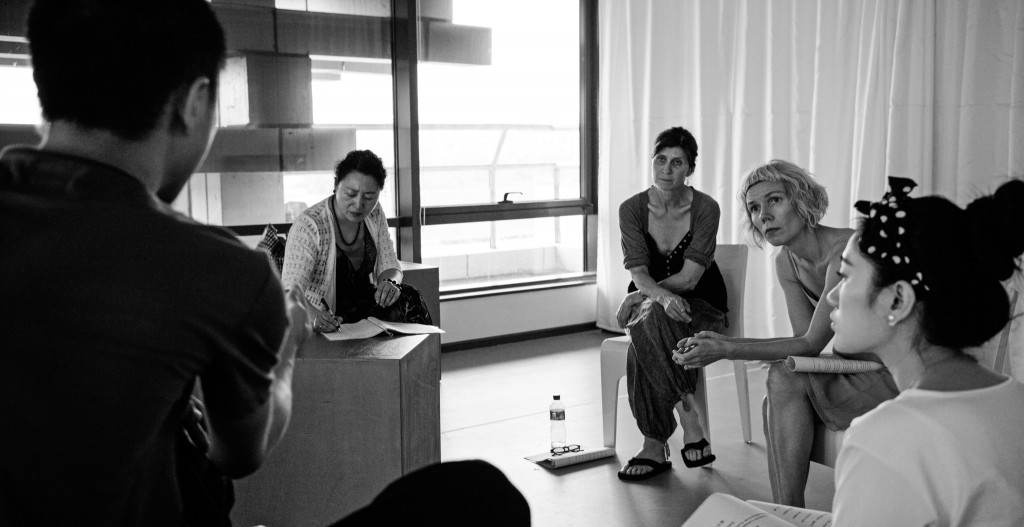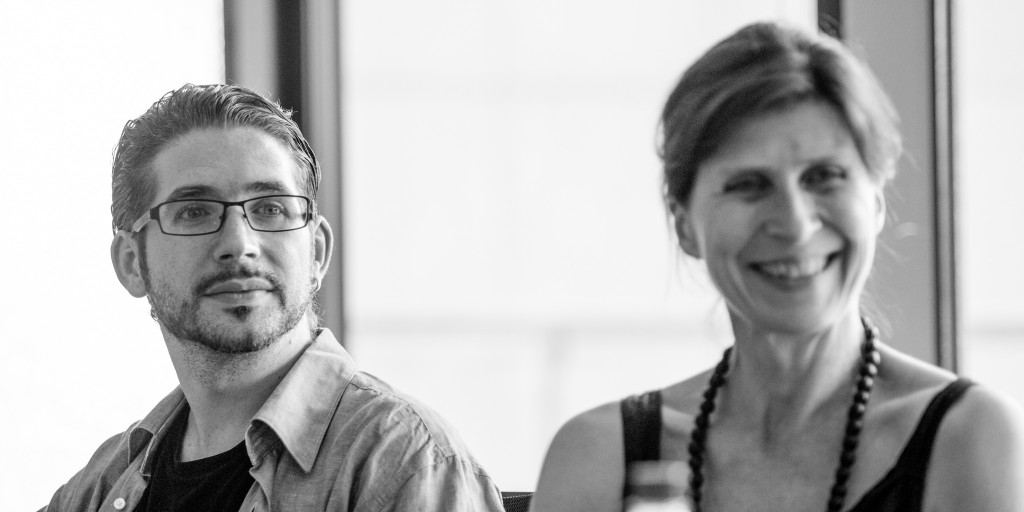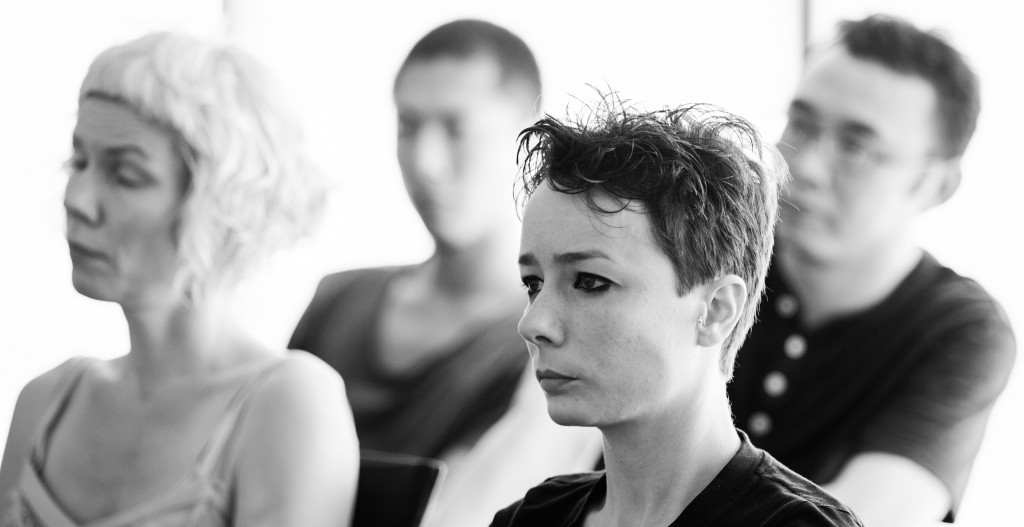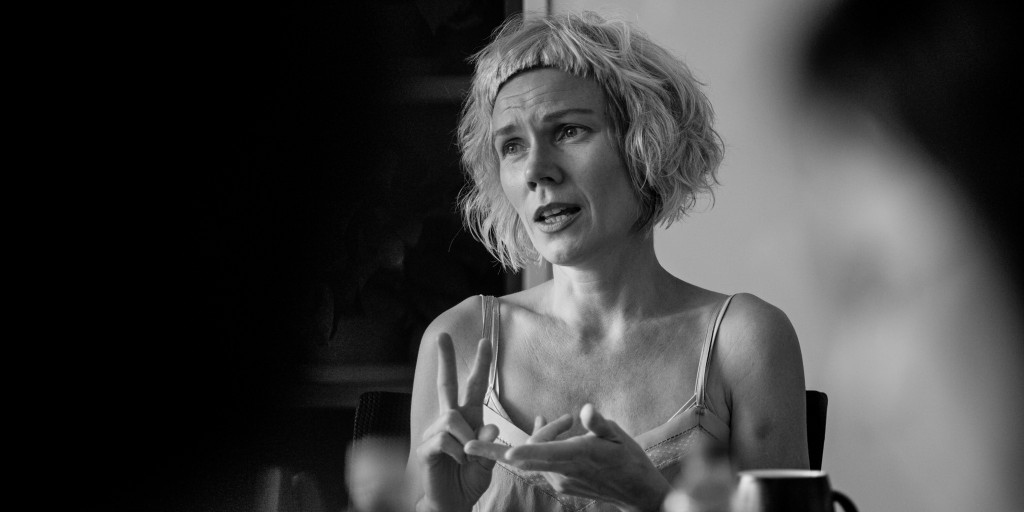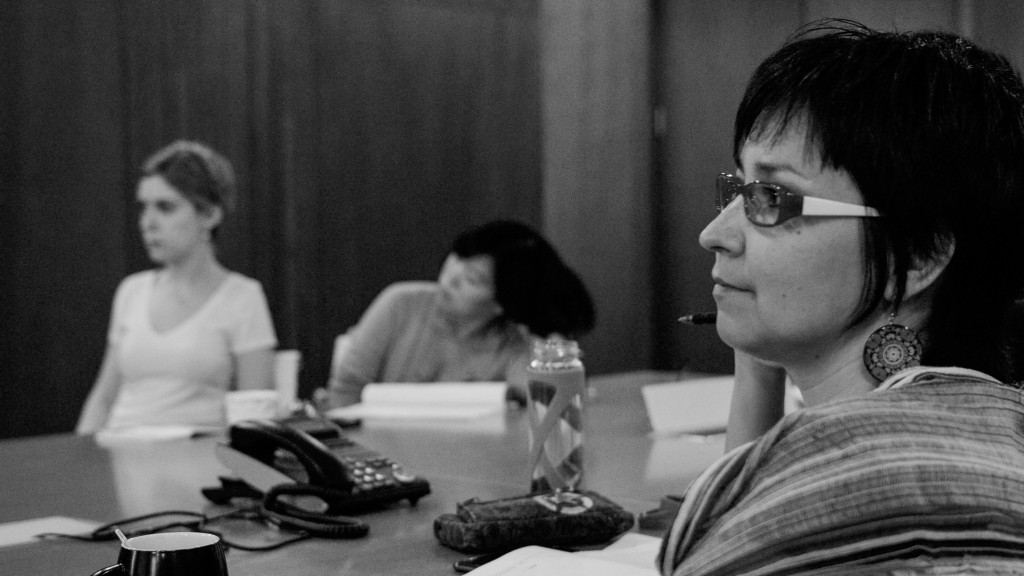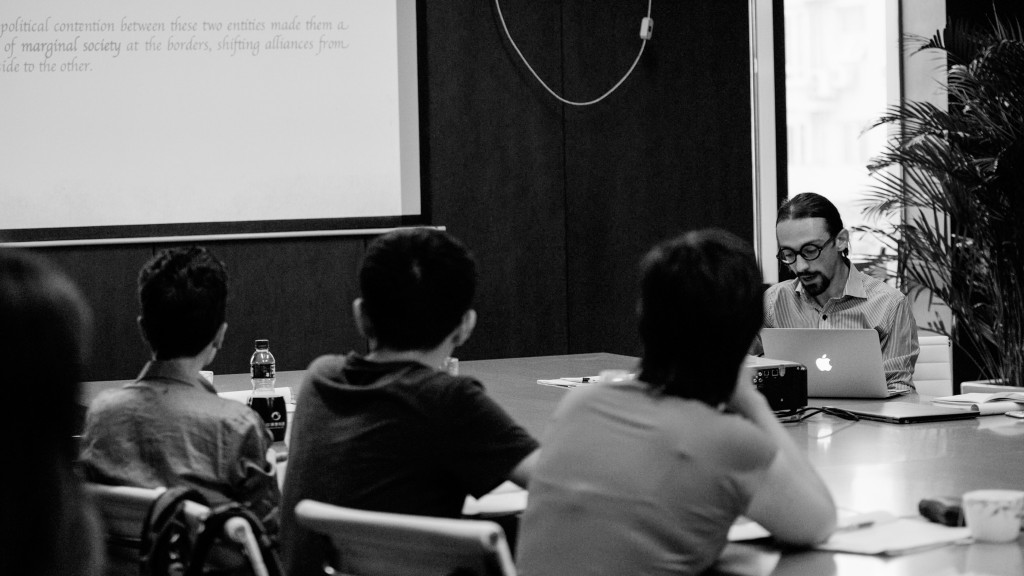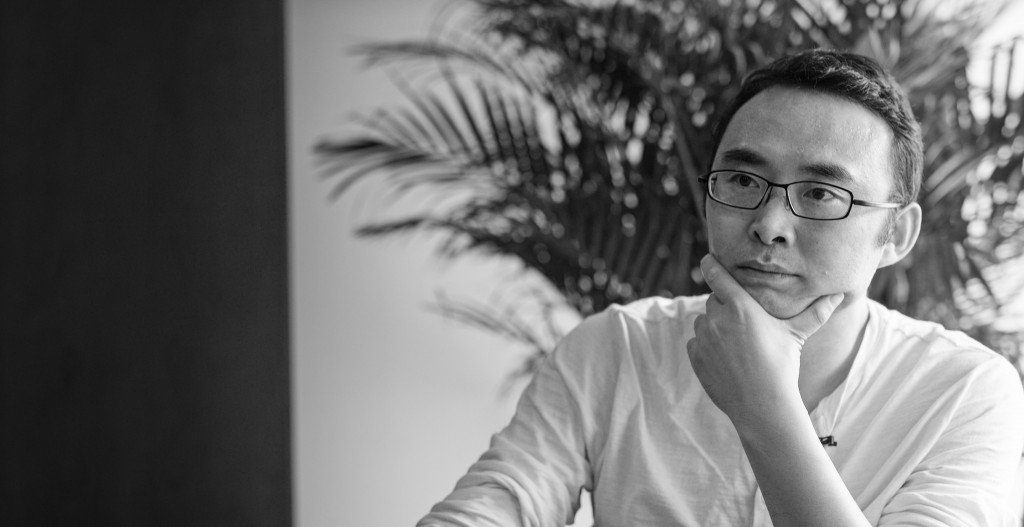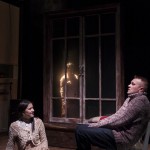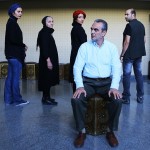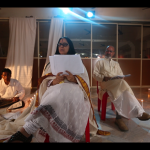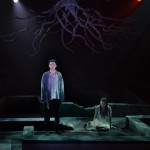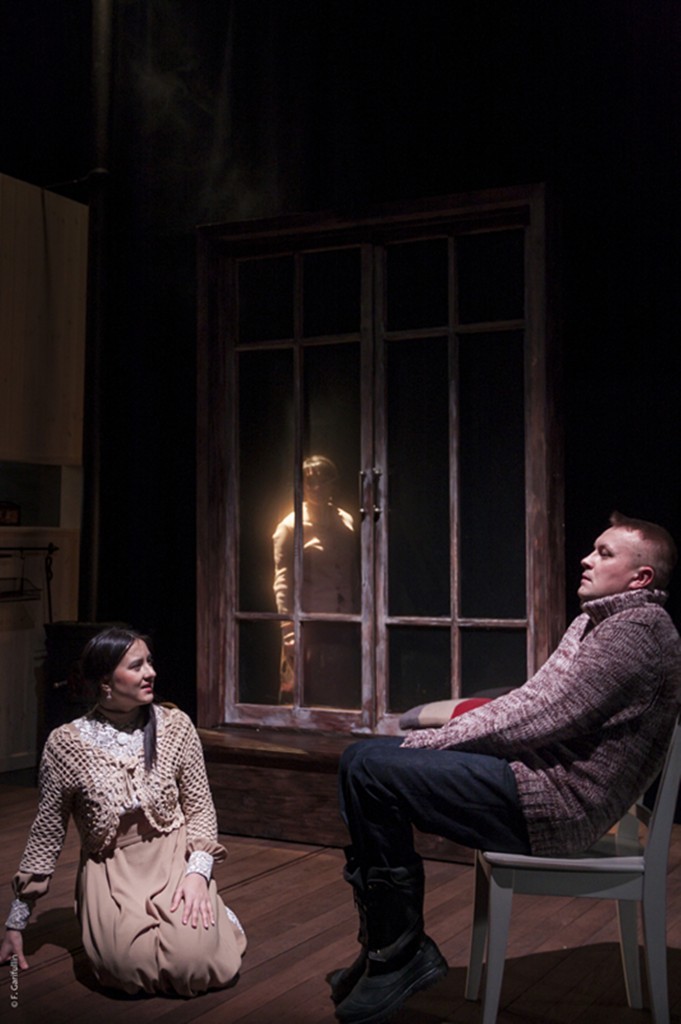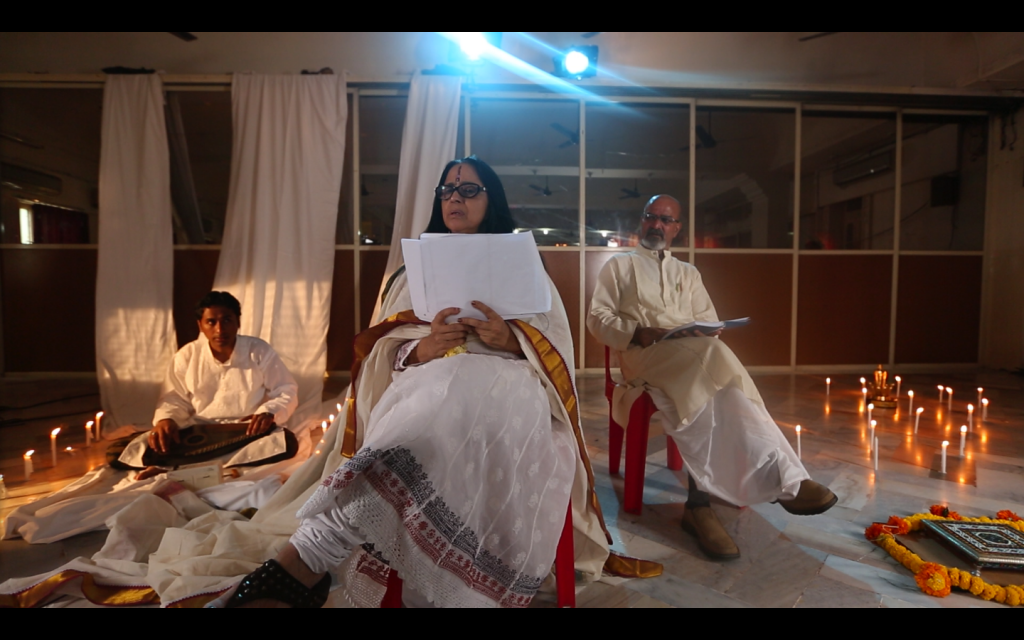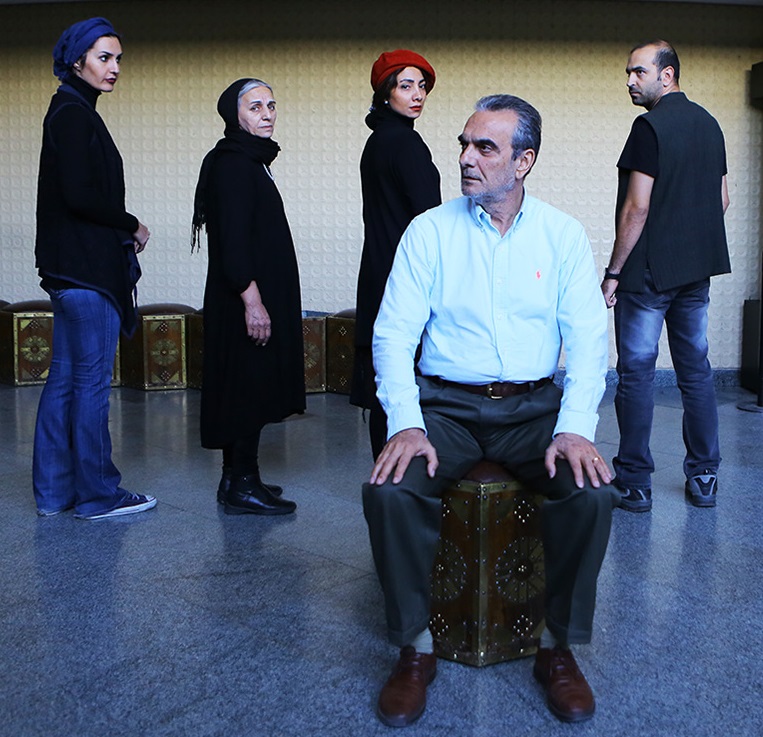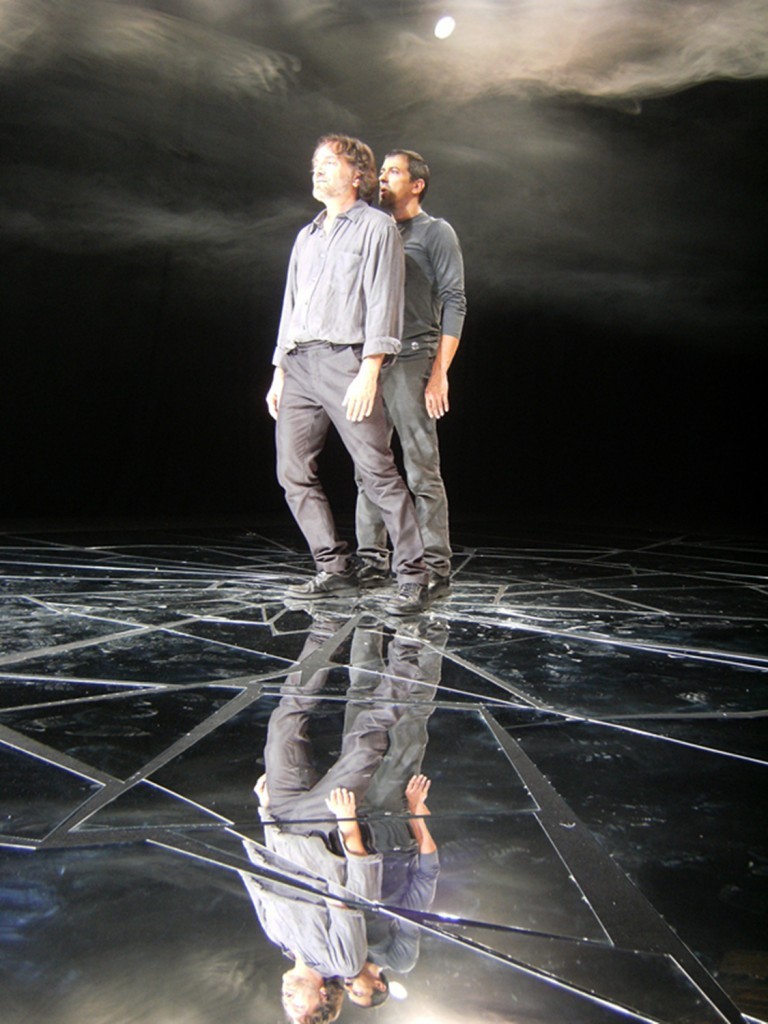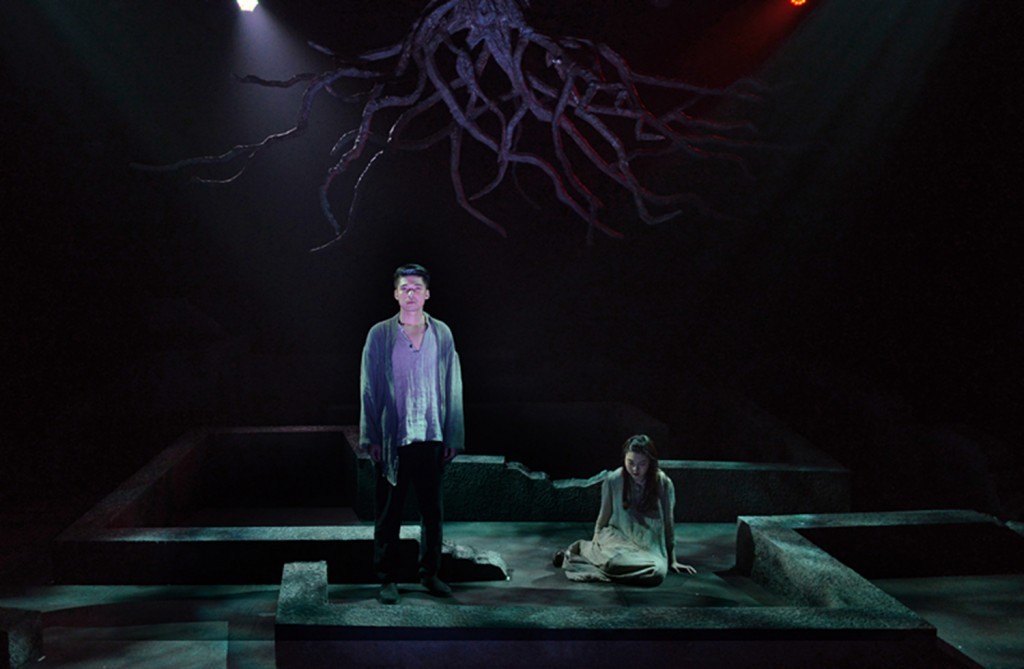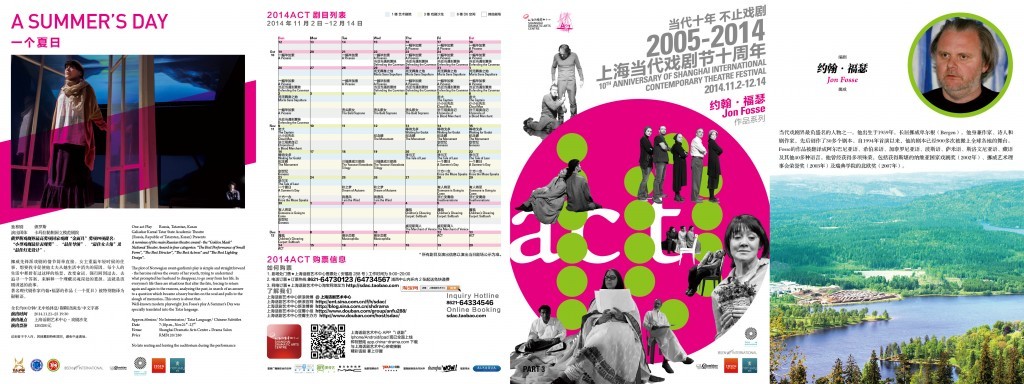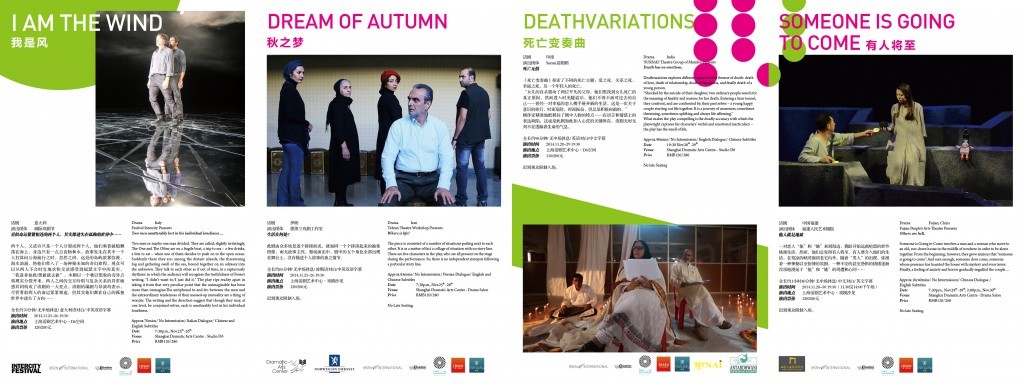“To me theatre is a way to understand through and by emotions. It’s a reflection that comes besides the nationality and language. Besides the languages, there are a lot of stimuli.”
Jon Fosse
International Workshop Festival of Theatre in HK by HKREP (Hong Kong Repertory Theatre)
Date:
5-10 October 2015 (Monday to Saturday)
Time:
5-9 October 2015 (workshop)
10 October 2015 (public demonstration)
Venue:
Hong Kong Repertory Theatre
Norwegian playwright Jon Fosse is one of the most important contemporary playwrights of our times. Considered as a universe unto himself that stretches from his home, the Norwegian Vestlandet to embrace Asia, South America, Eastern Europe and other corners of the world, his works have been translated into 40 languages with over 900 performances all over the world. He writes on the critical human condition of loneliness, loss, suffering, death and belonging to nowhere, a condition that speaks volumes to our contemporary milieu. As an outstanding playwright, poet and writer, he has been awarded numerous awards including the Brage Prize 2005, International Ibsen Award 2010, European Prize for Literature 2014 and Nordic Council Literature Prize 2015.
West Kowloon and Hong Kong Repertory Theatre have invited Hege Randi Tørressen, head dramaturge of Ibsen International, to conduct a public lecture on Jon Fosse. This is a rare intimate glimpse into the acclaimed works of Jon Fosse and the massive influence of his works on the text based theatre scene. Fosse’s writing is all about rhythm and silence. He has often been compared with Harold Pinter and Samuel Beckett; he is less naturalistic, more liturgical than either.
In this 6-day workshop led by Norwegian dramaturg Hege Randi Torrensen, participants embarked on a journey to the Fosse’s world, read behind the text and explored the relationship between reality and illusion. Under the guidance of Hege, they studied two of Fosse’s plays, including “Someone is going to come” and “Dream of Autum”. Through readings and rehearsals, participants analysed different elements in his plays and explored different ways of interpreting his works.
Pictures
Bios:
Hege Randi Tørressen: Dramaturge Director
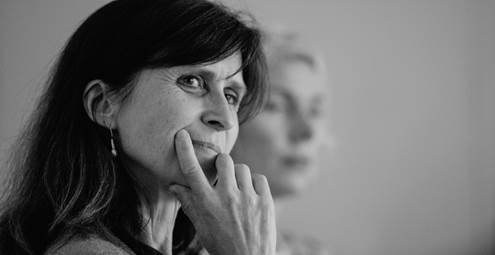 Hege Randi Tørressen is a Norwegian theatre practitioner based in Oslo. She studied at the Ludwig-Maximilian-University in Munich, where she received a master’s degree in theatre and literature. During more than 25 years, she has worked on more than 100 theatre productions in Norwegian, German, English and Chinese language. For the last 17 years she has worked as dramaturge at the National Theatre (Nationaltheatret) in Oslo. She is a consultant for “International Ibsen Festival” and has been a jury member of the Norwegian Ibsen Prize for 7 years. During the last 2 years she has also been working as Dramaturge Director for Ibsen International where, amongst other things, she has been involved in Wang Chong’s “Ibsen in one take”.
Hege Randi Tørressen is a Norwegian theatre practitioner based in Oslo. She studied at the Ludwig-Maximilian-University in Munich, where she received a master’s degree in theatre and literature. During more than 25 years, she has worked on more than 100 theatre productions in Norwegian, German, English and Chinese language. For the last 17 years she has worked as dramaturge at the National Theatre (Nationaltheatret) in Oslo. She is a consultant for “International Ibsen Festival” and has been a jury member of the Norwegian Ibsen Prize for 7 years. During the last 2 years she has also been working as Dramaturge Director for Ibsen International where, amongst other things, she has been involved in Wang Chong’s “Ibsen in one take”.
Fung Wai Hang: Moderator of the Workshop
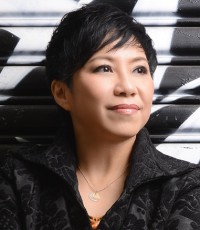 A fine talent in stage art, Fung is not only an actress but also a director, playwright and programme coordinator. She obtained an MFA in Theatre Practice at the University of Exeter and was a graduate of the inaugural class of the Hong Kong Academy for Performing Arts’ School of Drama. Fung has taken on various positions of the HKREP, including Principal Actress, assistant to the Artistic Director and the Project Coordinator of “Rep 2 Programmes”. Beginning in 2010, she became Resident Director at the HKREP, coordinating and planning the company’s Black Box productions.
A fine talent in stage art, Fung is not only an actress but also a director, playwright and programme coordinator. She obtained an MFA in Theatre Practice at the University of Exeter and was a graduate of the inaugural class of the Hong Kong Academy for Performing Arts’ School of Drama. Fung has taken on various positions of the HKREP, including Principal Actress, assistant to the Artistic Director and the Project Coordinator of “Rep 2 Programmes”. Beginning in 2010, she became Resident Director at the HKREP, coordinating and planning the company’s Black Box productions.
Collaborator
The Hong Kong Repertory Theatre is the longest standing and largest professional theatre company in the city, established in 1977 and incorporated in 2001. Financially supported by the Government of the Hong Kong Special Administrative Region, the Hong Kong Repertory operates under the guidance of its Governing Council, and employs a team of over 70 full-time professionals including the artistic director, resident director, actors, technical and stage management staff as well as administrators.
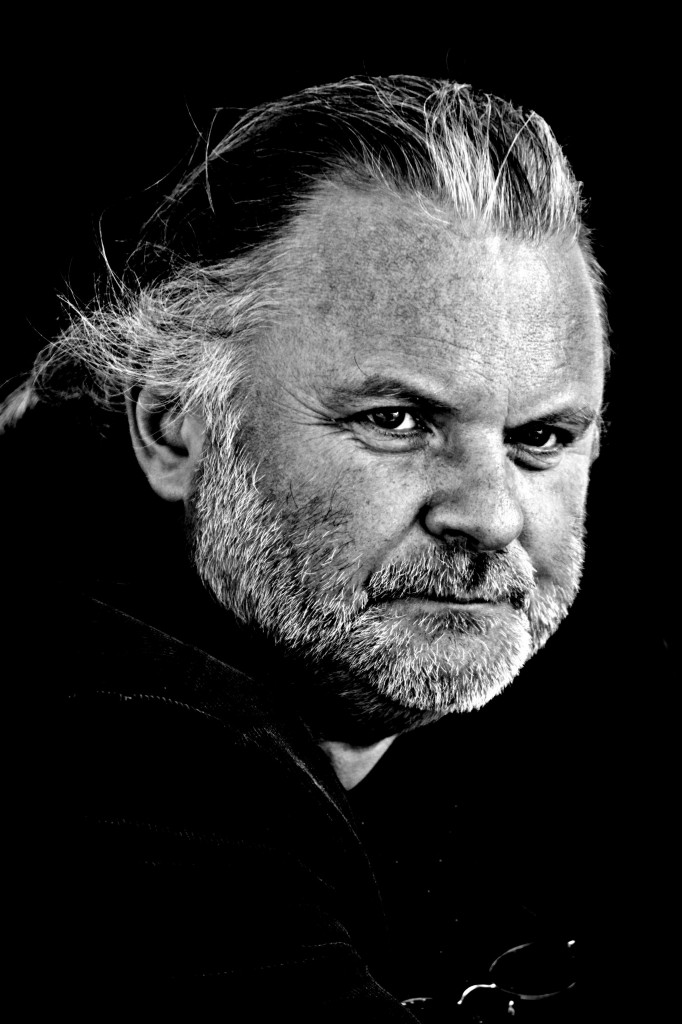




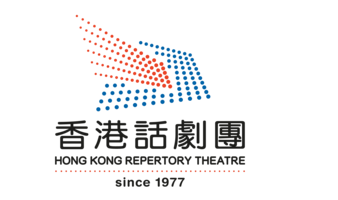
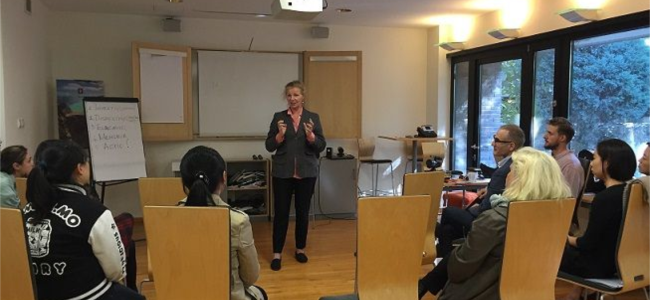
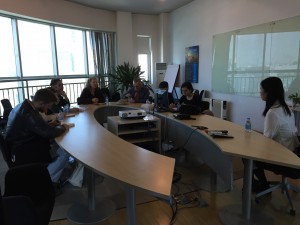 The practical rhetoric team in collaboration with Alessandro Rolandi, head of the
The practical rhetoric team in collaboration with Alessandro Rolandi, head of the 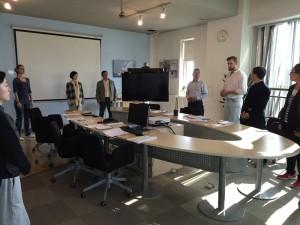 The workshop was divided into two parts. During the first part, the practical rhetoric team conducted interviews through storytelling techniques with the staff members, to locate problems in communication, and then elaborate strategies to address those issues. During the second part, the team gave a demonstration of how practical rhetoric works, and then organised a few activities to share the research’s results, and suggest possible approach to problem-solving.
The workshop was divided into two parts. During the first part, the practical rhetoric team conducted interviews through storytelling techniques with the staff members, to locate problems in communication, and then elaborate strategies to address those issues. During the second part, the team gave a demonstration of how practical rhetoric works, and then organised a few activities to share the research’s results, and suggest possible approach to problem-solving.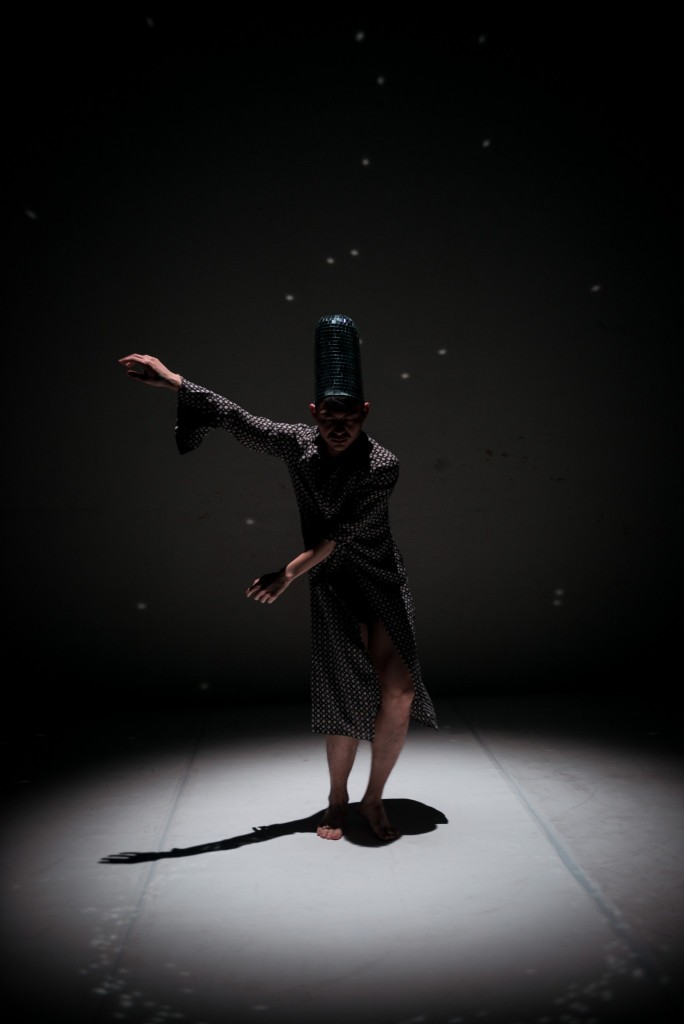 public, “Disco-Teca” had its premiere at the Italian GenderBender, an international festival introducing new imagery related to gender identities and body representations stemming from contemporary culture. The performance represents a new opening for the festival, that never featured a Chinese performer before. For this occasion, choreographer Er Gao presented a solo version performed by himself, a collage of the group version rehearsed in the previous months. According to Daniele del Pozzo, artistic director, the show was “one of the most extravagant and curious performances” ever to appear on the festival; its surprising mix of retro flavor and refined body expression is refreshing and unexpected for an European audience. The performance, sold-out on both days, was closely followed by local as well international media, and featured a Q&A session where Er Gao and producer Fabrizio Massini discussed the genesis of the performance, its academic+performative approach, and the phenomenon of disco culture in 1980s China.
public, “Disco-Teca” had its premiere at the Italian GenderBender, an international festival introducing new imagery related to gender identities and body representations stemming from contemporary culture. The performance represents a new opening for the festival, that never featured a Chinese performer before. For this occasion, choreographer Er Gao presented a solo version performed by himself, a collage of the group version rehearsed in the previous months. According to Daniele del Pozzo, artistic director, the show was “one of the most extravagant and curious performances” ever to appear on the festival; its surprising mix of retro flavor and refined body expression is refreshing and unexpected for an European audience. The performance, sold-out on both days, was closely followed by local as well international media, and featured a Q&A session where Er Gao and producer Fabrizio Massini discussed the genesis of the performance, its academic+performative approach, and the phenomenon of disco culture in 1980s China.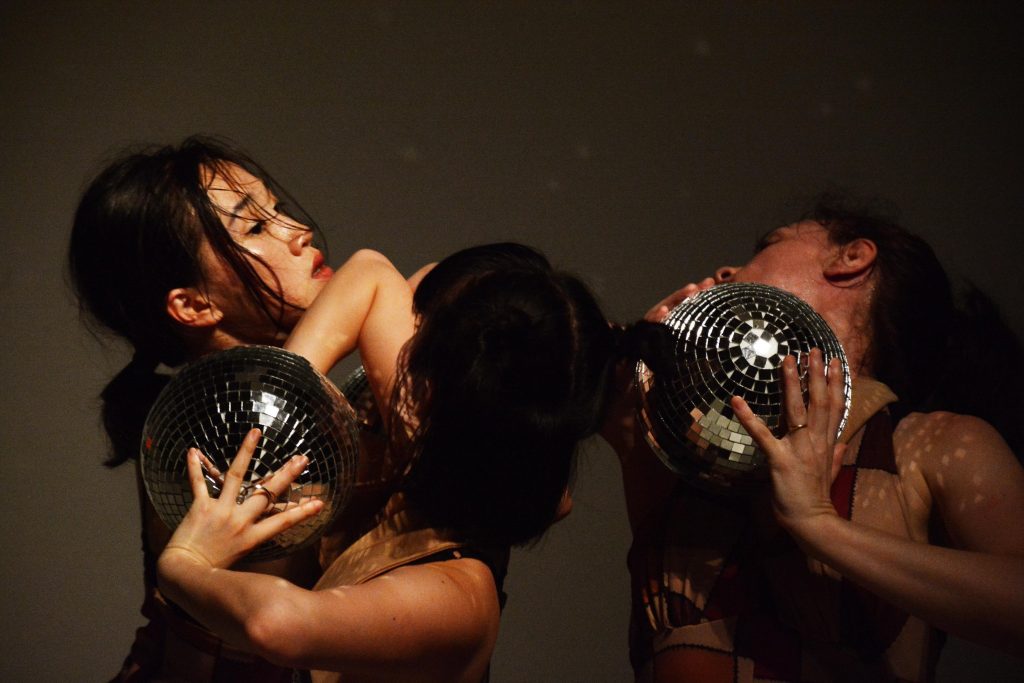
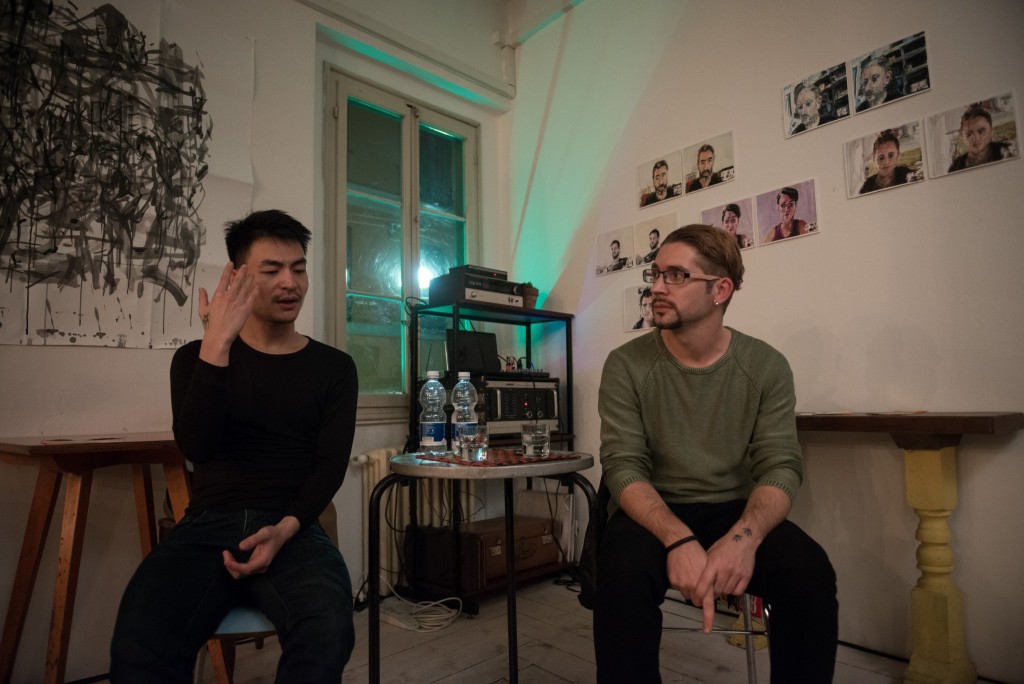
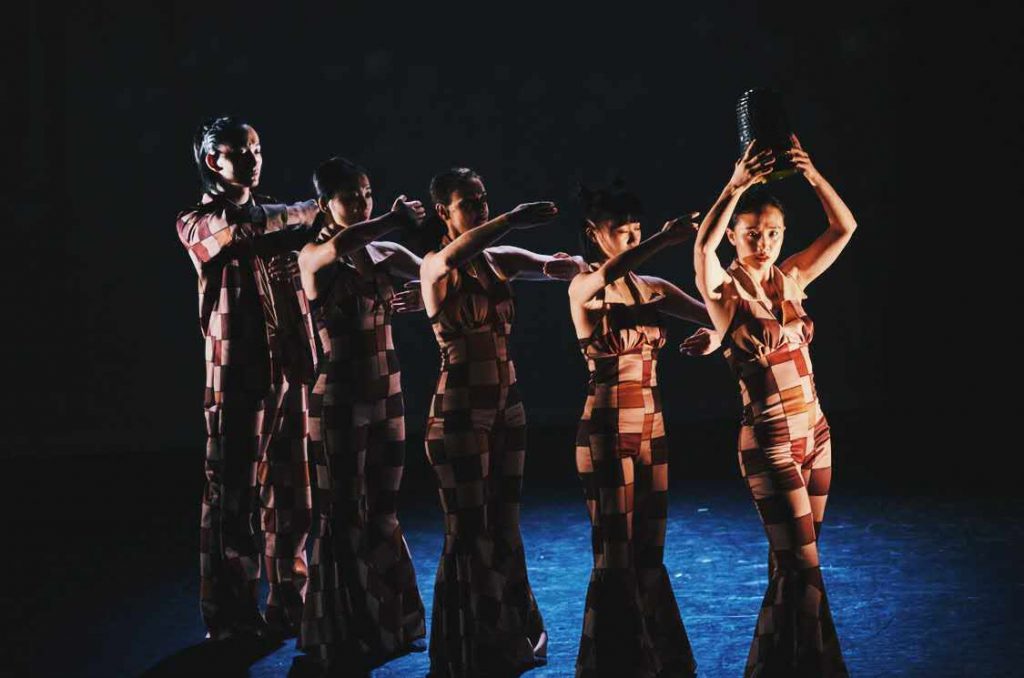
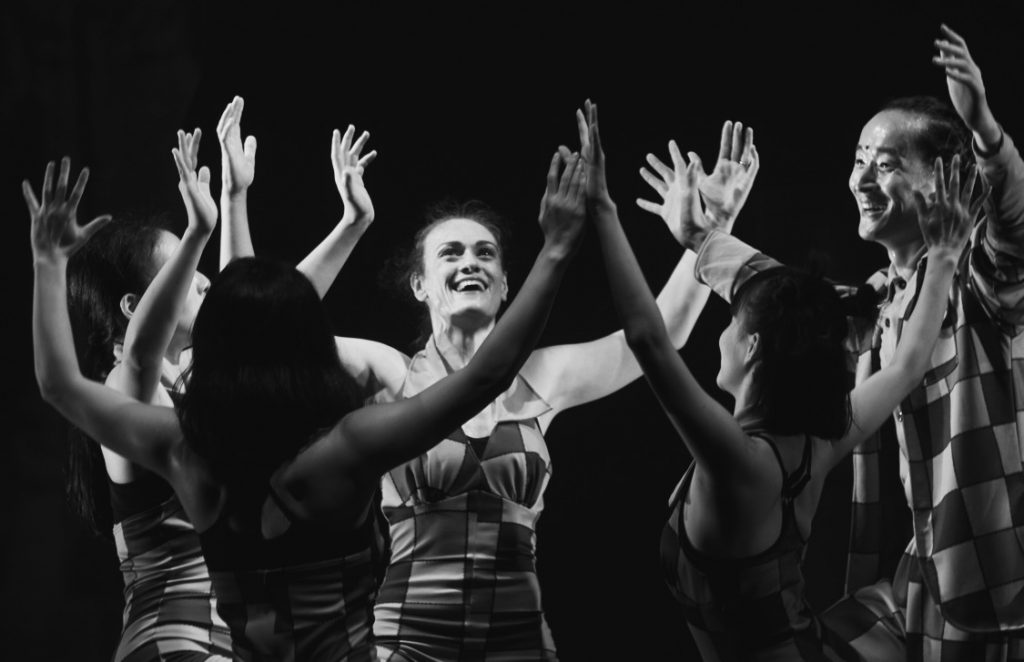


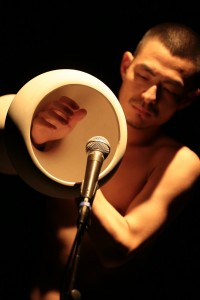
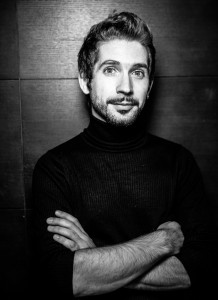 Fabrizio Massini is a theatre practitioner. Starting off as an actor and director in Florence, since 2002 he started studying Chinese culture and theatre in Florence, London (SOAS) and Beijing (Central Academy of Drama). Based in China since 2009, Fabrizio is active as artistic consultant and performing arts producer for several institutions in Europe and China including Beijing Fringe Festival, Wuzhen Theatre Festival, Guangzhou Dance Festival, Intercity Festival (Italy) and Odin Teatret (Denmark). He also curated workshops, forums and gave guest lectures for the Danish National School of Performing Arts, National Theatre Company of China and others. Since 2016, Fabrizio is Artistic Director at Ibsen International.
Fabrizio Massini is a theatre practitioner. Starting off as an actor and director in Florence, since 2002 he started studying Chinese culture and theatre in Florence, London (SOAS) and Beijing (Central Academy of Drama). Based in China since 2009, Fabrizio is active as artistic consultant and performing arts producer for several institutions in Europe and China including Beijing Fringe Festival, Wuzhen Theatre Festival, Guangzhou Dance Festival, Intercity Festival (Italy) and Odin Teatret (Denmark). He also curated workshops, forums and gave guest lectures for the Danish National School of Performing Arts, National Theatre Company of China and others. Since 2016, Fabrizio is Artistic Director at Ibsen International.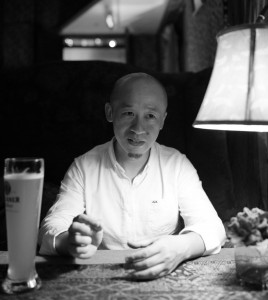

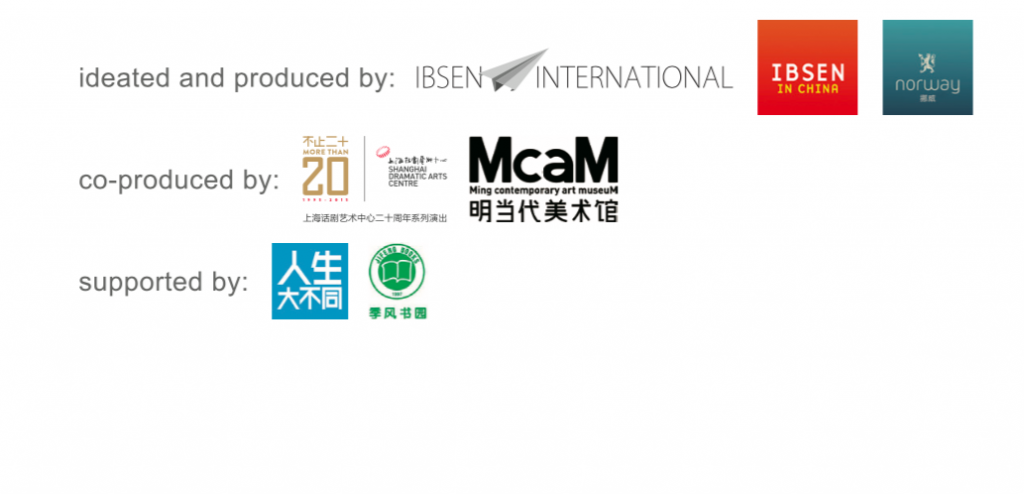
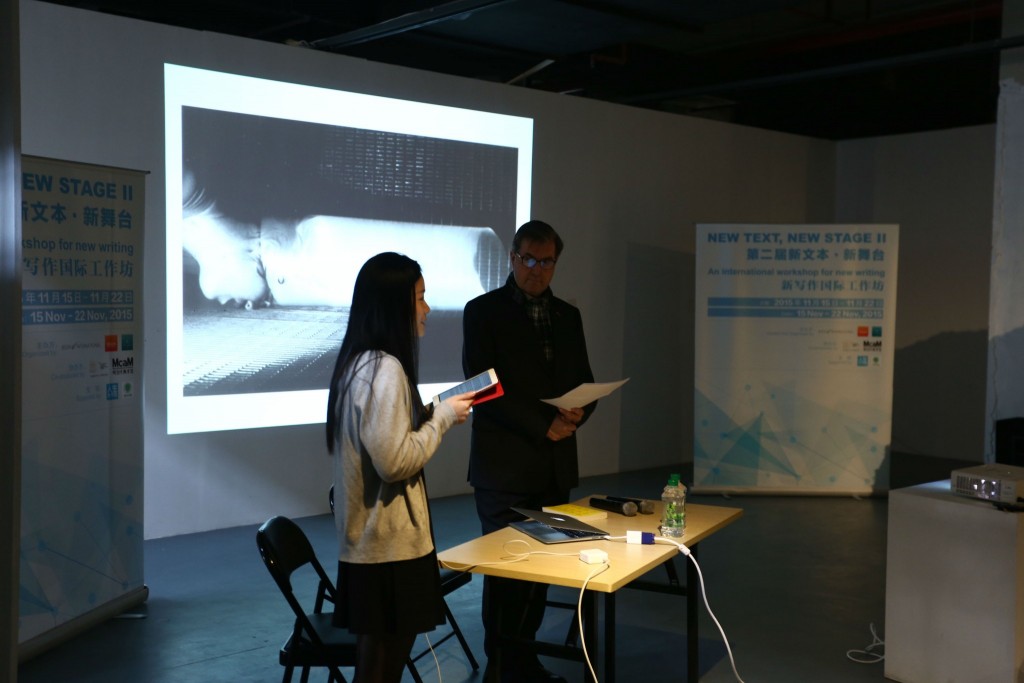

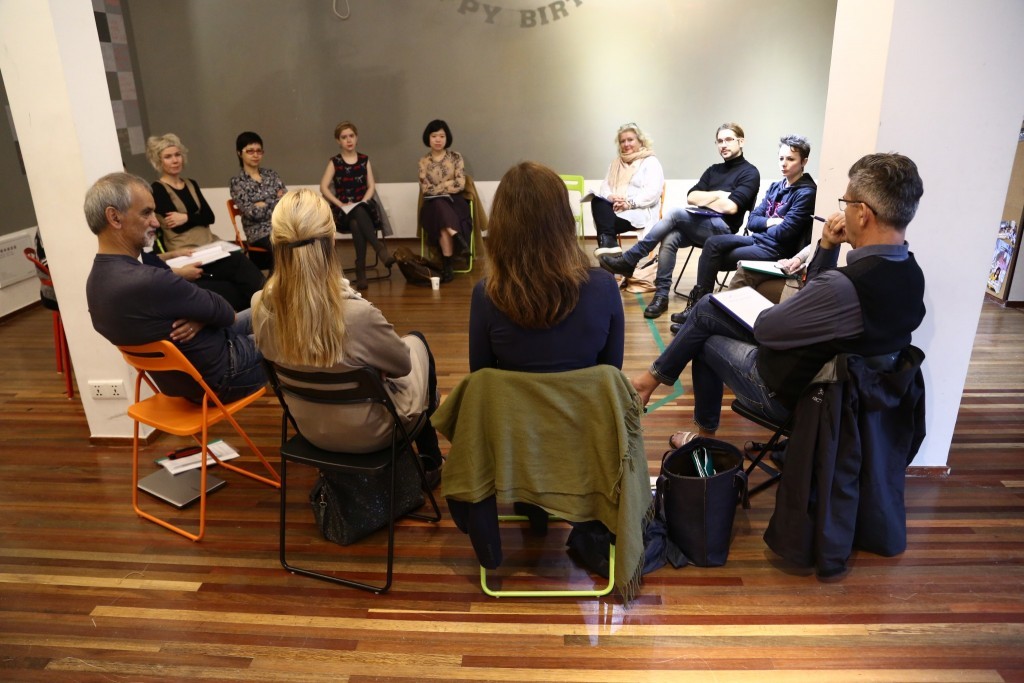
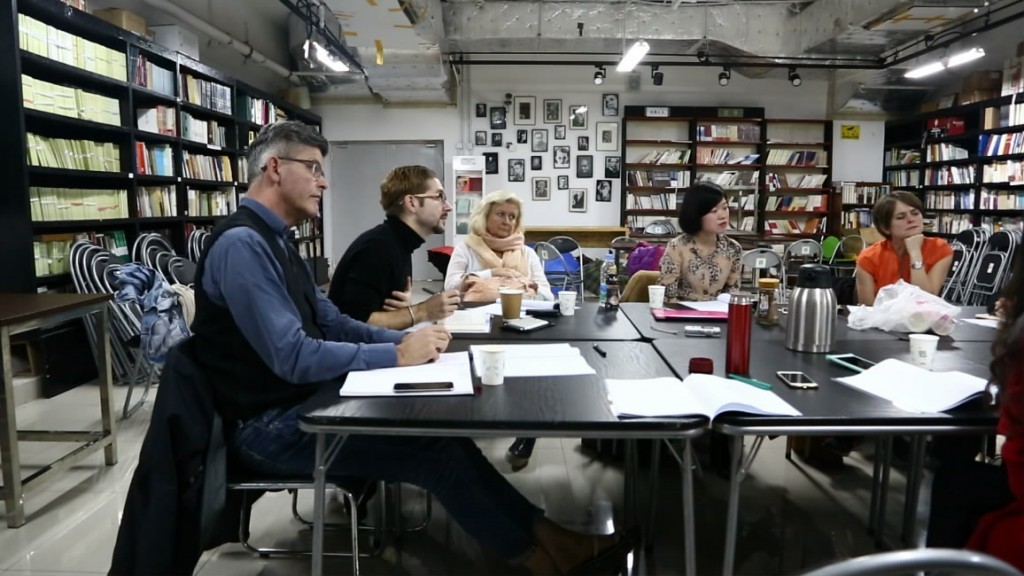

![509A8904[00_03_24][20151119-235100-0]](http://ibseninternational.com/wp-content/uploads/2015/12/509A890400_03_2420151119-235100-0-1024x576.jpg)
![509A8935[00_00_42][20151119-235721-0]](http://ibseninternational.com/wp-content/uploads/2015/12/509A893500_00_4220151119-235721-0-1024x576.jpg)
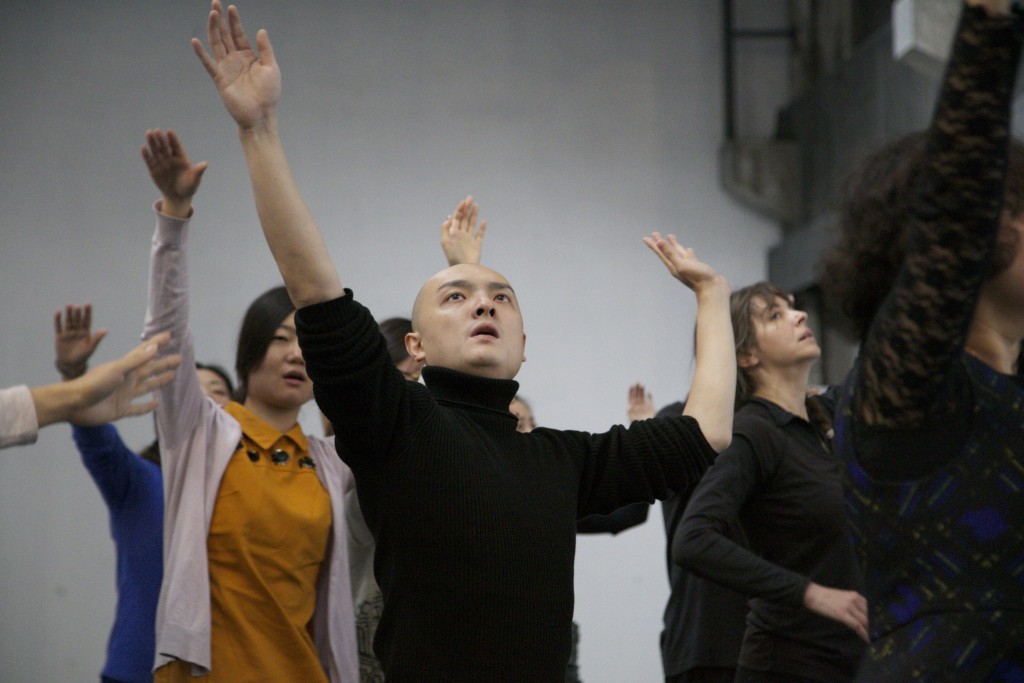
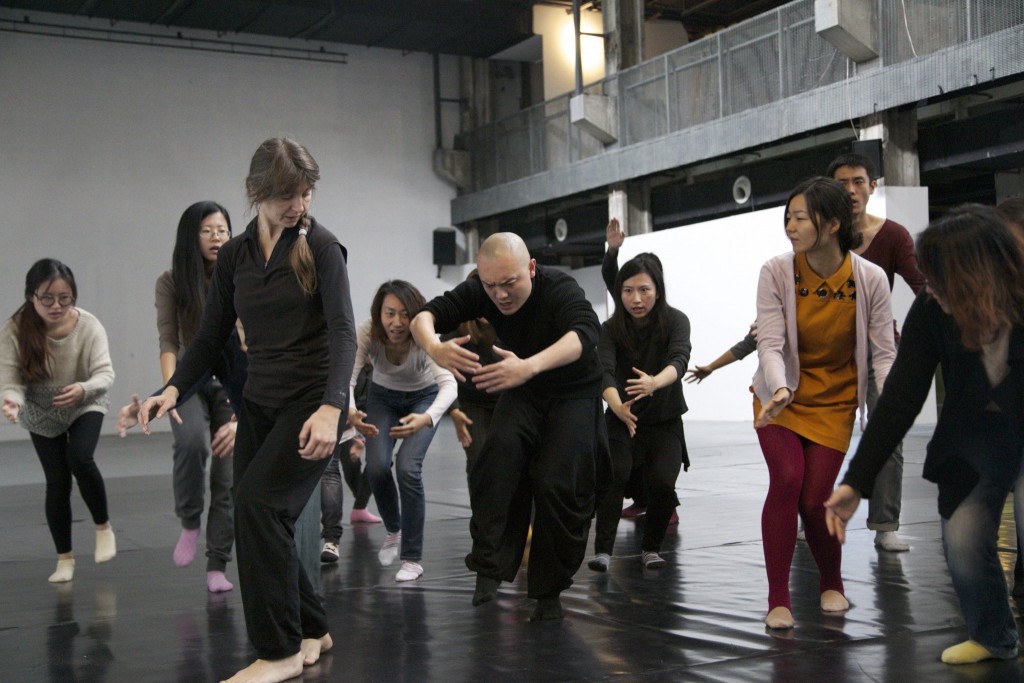
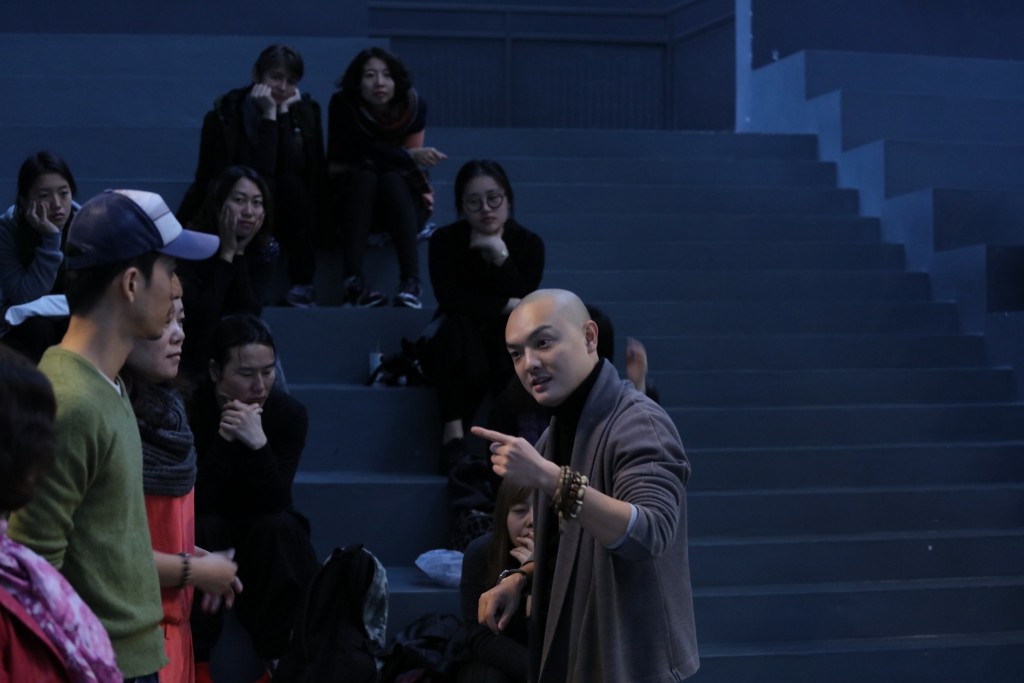
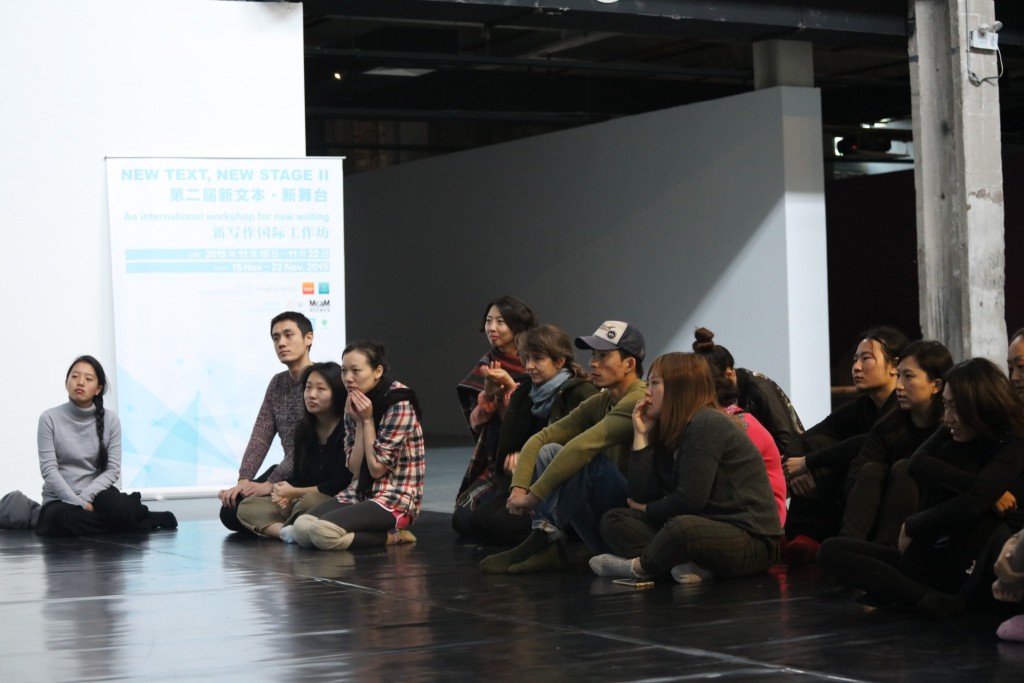
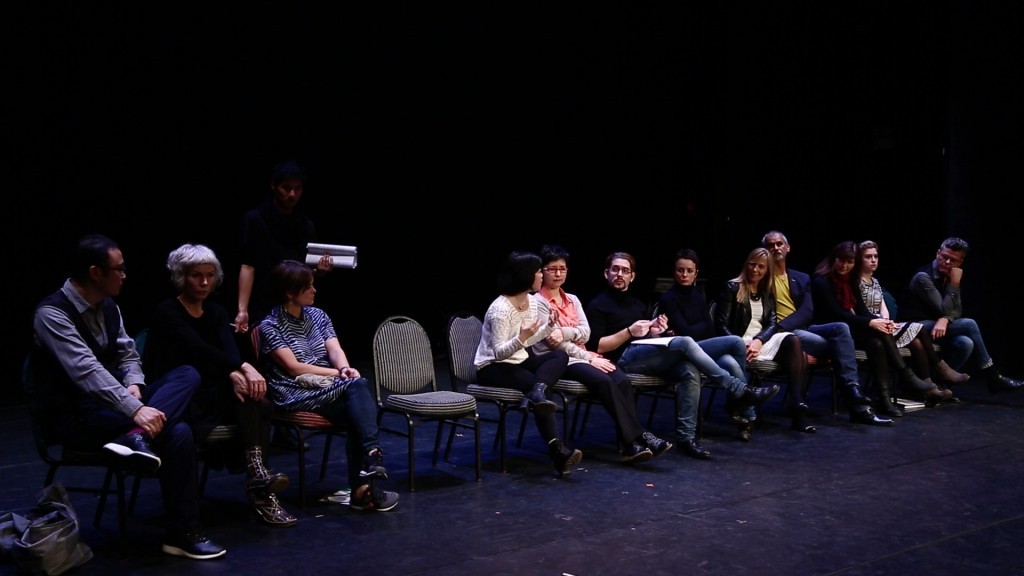
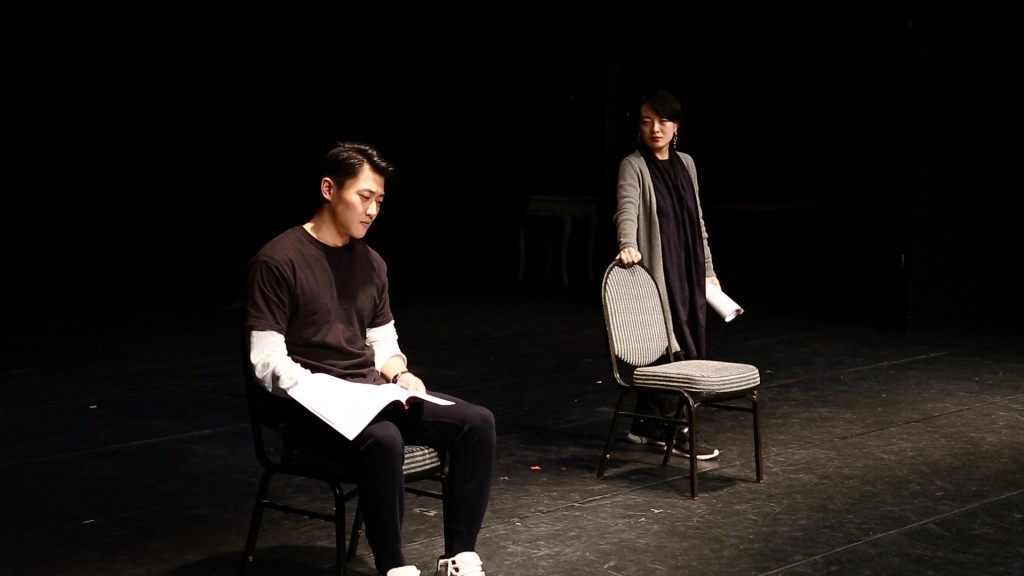
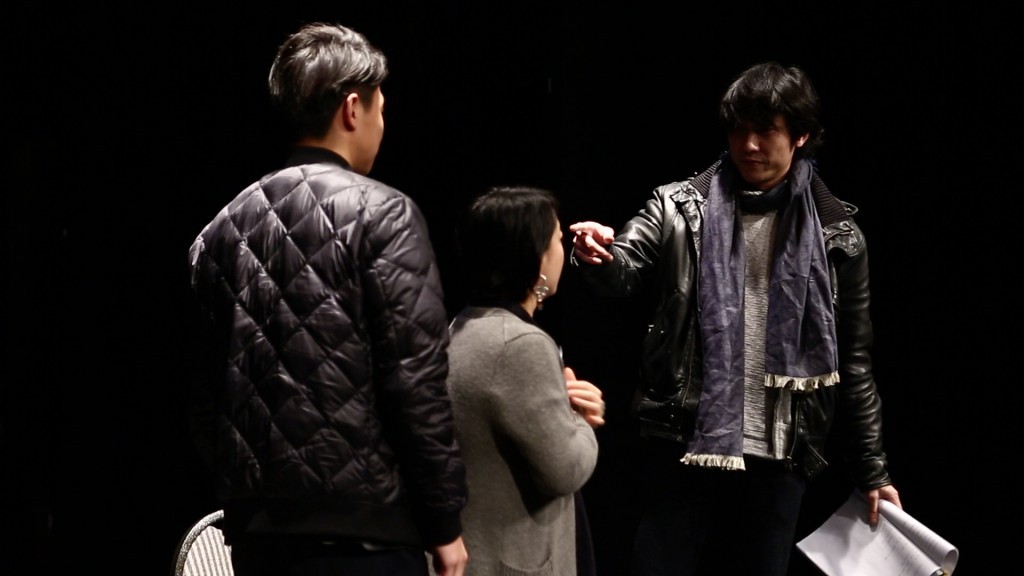
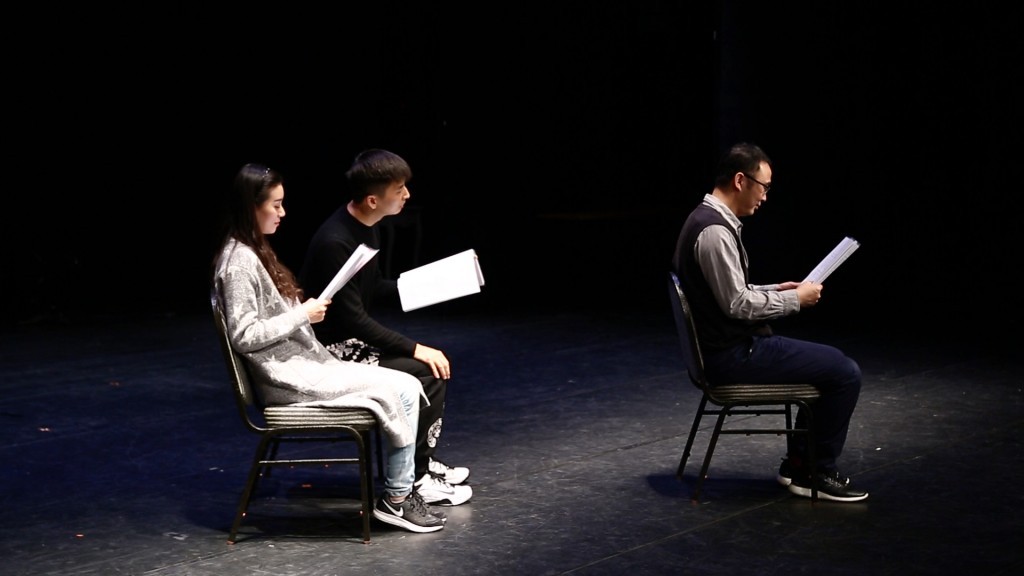
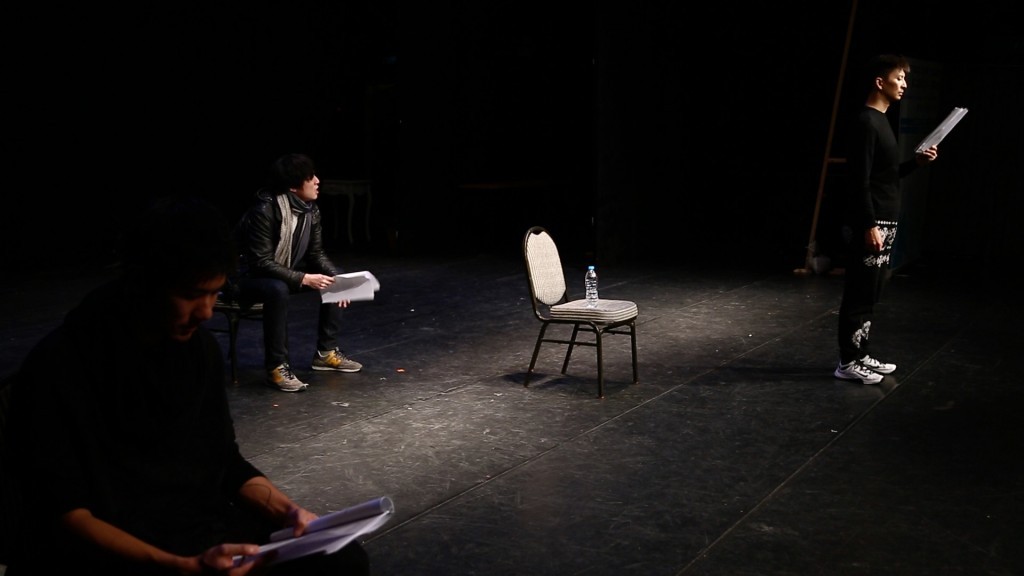
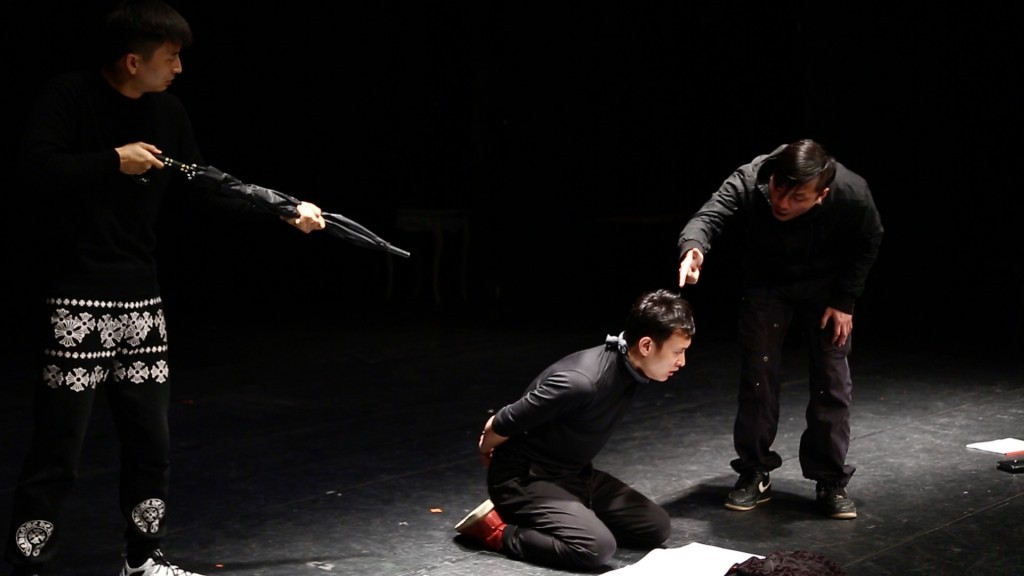
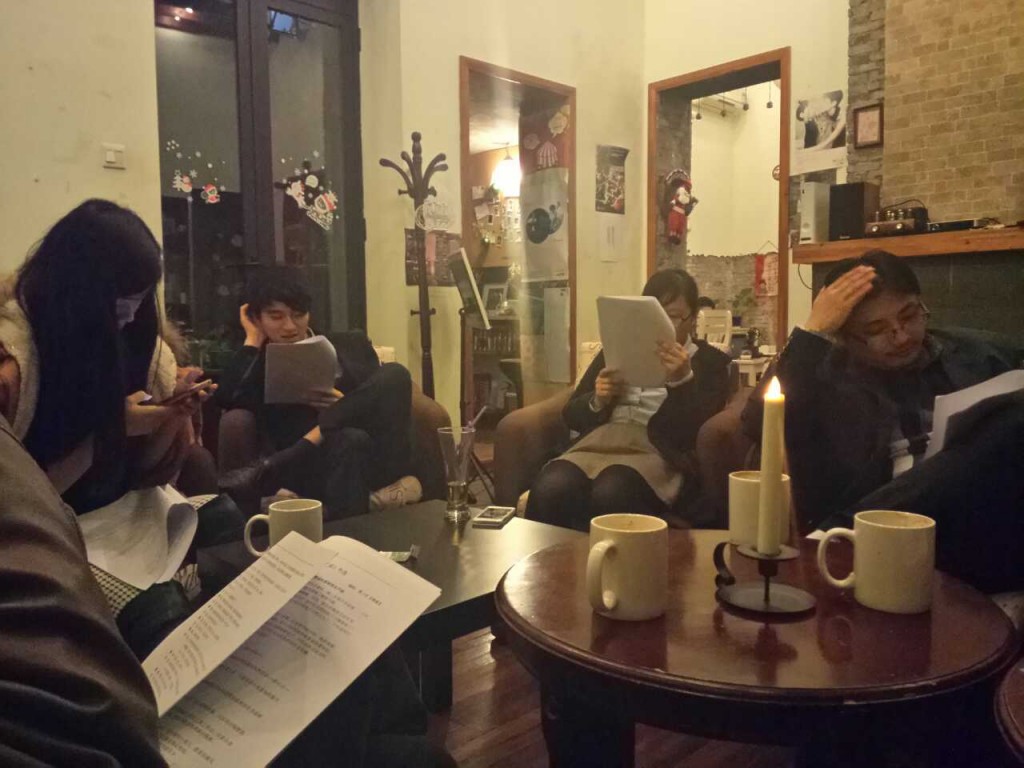
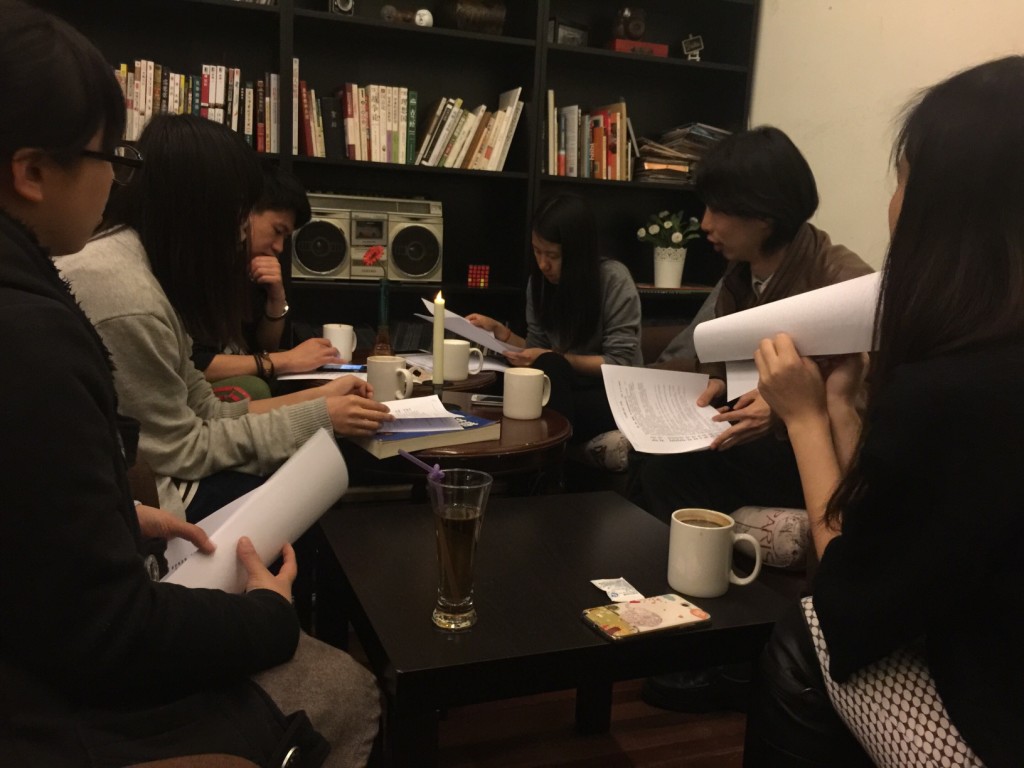
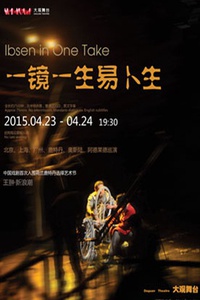
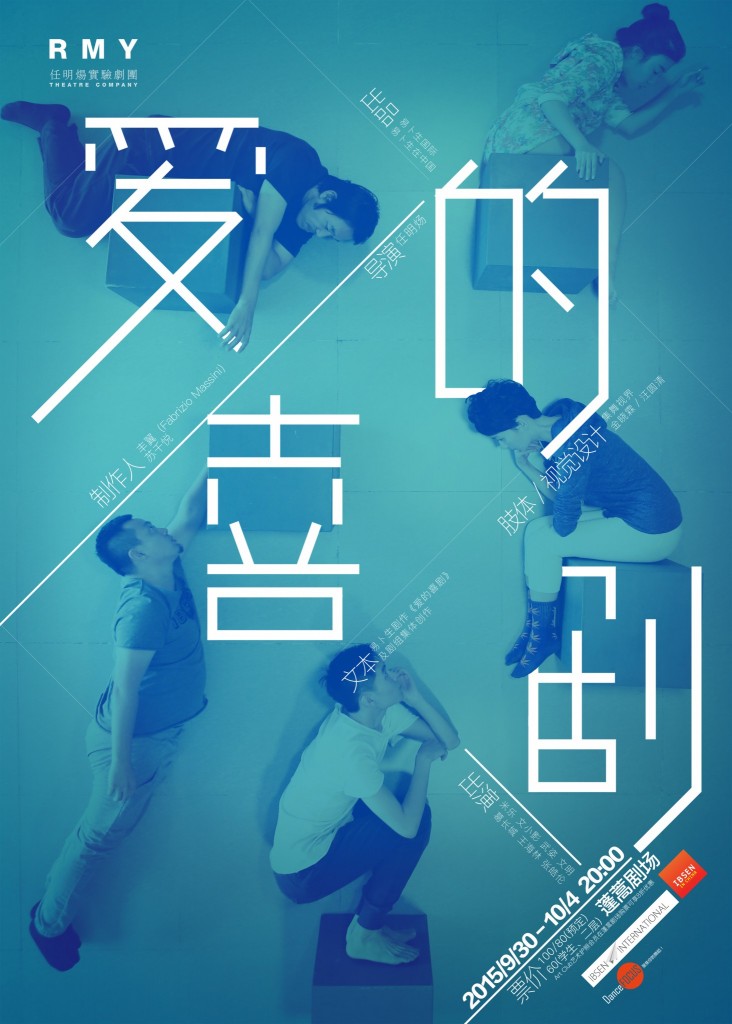
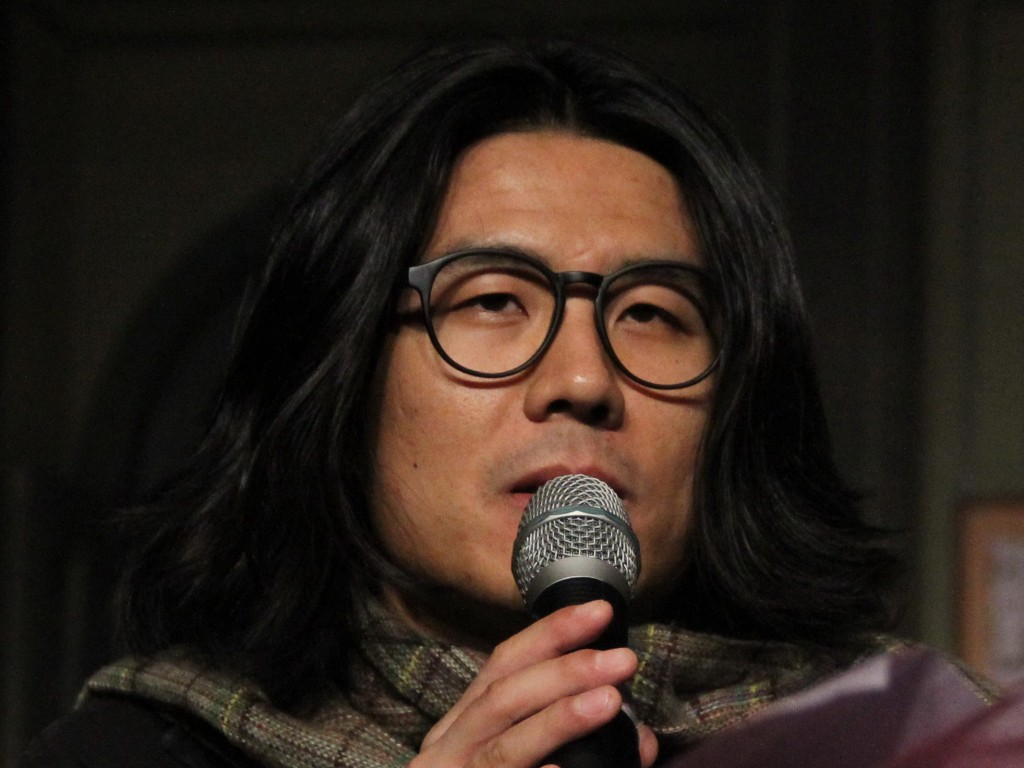
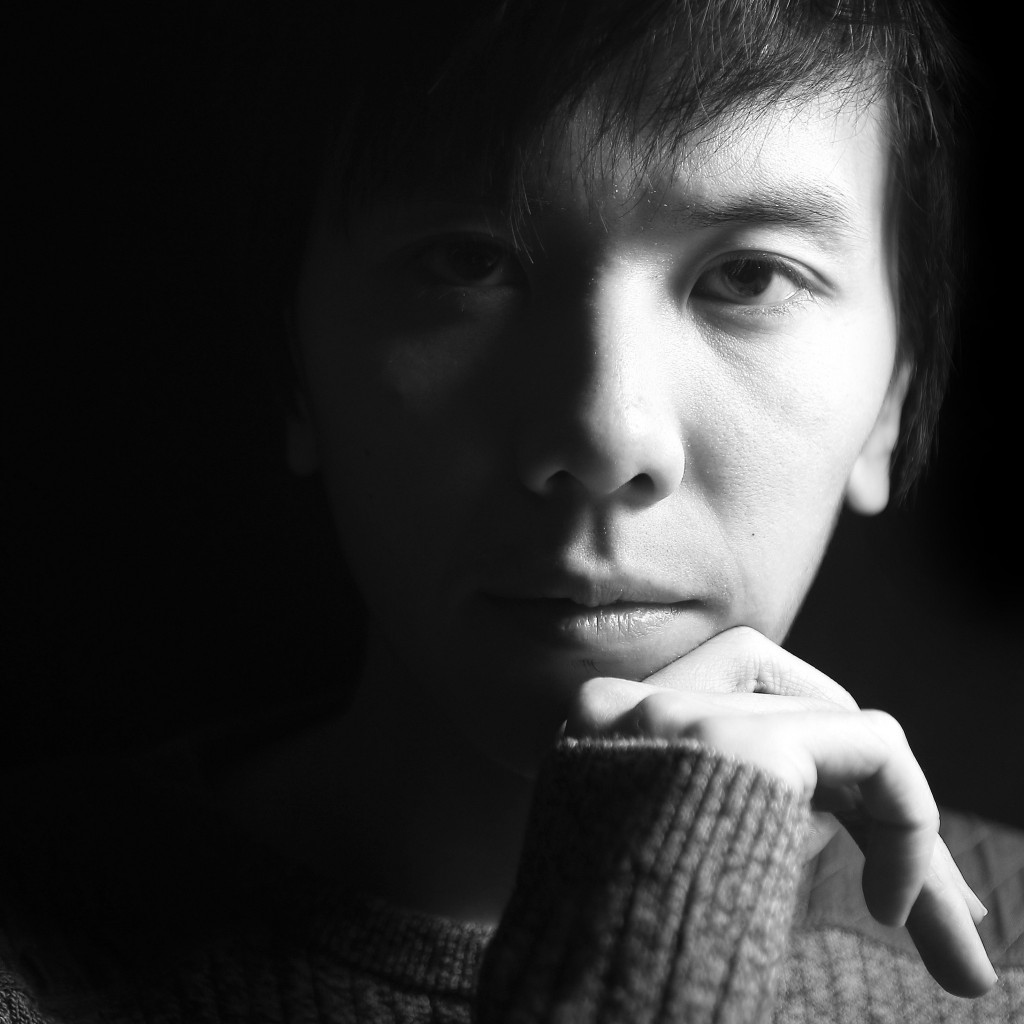

 After a meeting in November 2014 at the Guangdong Dance Festival, choreographer Er Gao and Ibsen International’s project manager Fabrizio Massini start discussing a new project. The core concept is the appearance of disco music in the 1980s, when China opens its doors to the world. A fresh breeze sweeps the country from the south; through a triangular route via colonial Hong Kong, disco music bursts in. A hurricane of synthesizers, lascivious moves, and wild hairdos storms the Popular Republic. After 3 decades of collectivism, the germs of individualism reappear in the ballrooms, floating along with the skirts, reflected in the disco balls. The Pandora’s Box of sexuality, gender, body, and pleasure in Disco music was opened.
After a meeting in November 2014 at the Guangdong Dance Festival, choreographer Er Gao and Ibsen International’s project manager Fabrizio Massini start discussing a new project. The core concept is the appearance of disco music in the 1980s, when China opens its doors to the world. A fresh breeze sweeps the country from the south; through a triangular route via colonial Hong Kong, disco music bursts in. A hurricane of synthesizers, lascivious moves, and wild hairdos storms the Popular Republic. After 3 decades of collectivism, the germs of individualism reappear in the ballrooms, floating along with the skirts, reflected in the disco balls. The Pandora’s Box of sexuality, gender, body, and pleasure in Disco music was opened.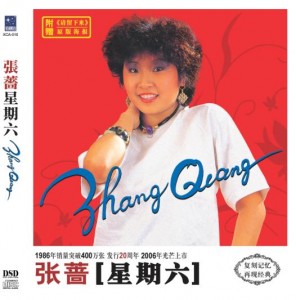 becoming a multidisciplinary investigation that combine performance with academic research. The common research points: how are cultures globalised/localised in the process of cultural fusion? What is preserved, transformed, and written off? How are music, body, dance, gender performance/performativity, and gender identity knitted into a sophisticated relationship?
becoming a multidisciplinary investigation that combine performance with academic research. The common research points: how are cultures globalised/localised in the process of cultural fusion? What is preserved, transformed, and written off? How are music, body, dance, gender performance/performativity, and gender identity knitted into a sophisticated relationship?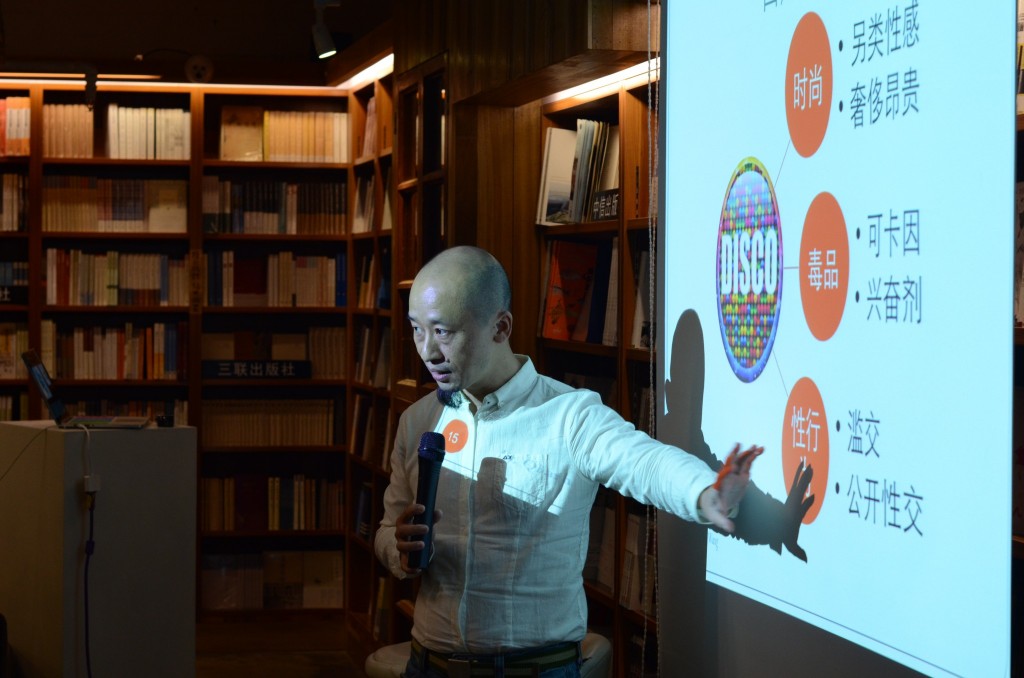
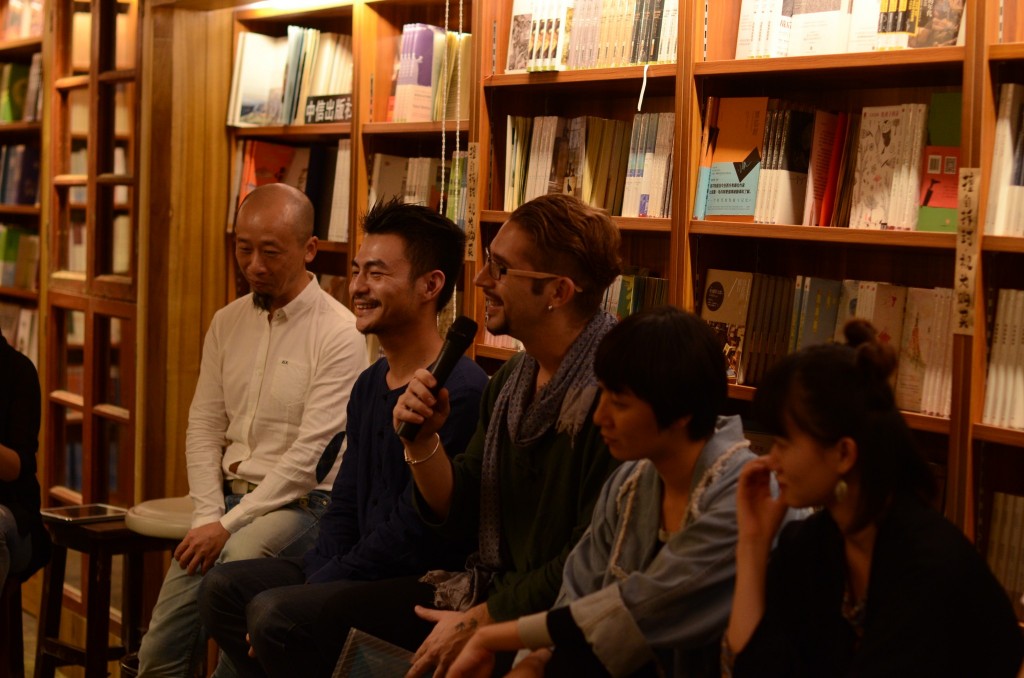

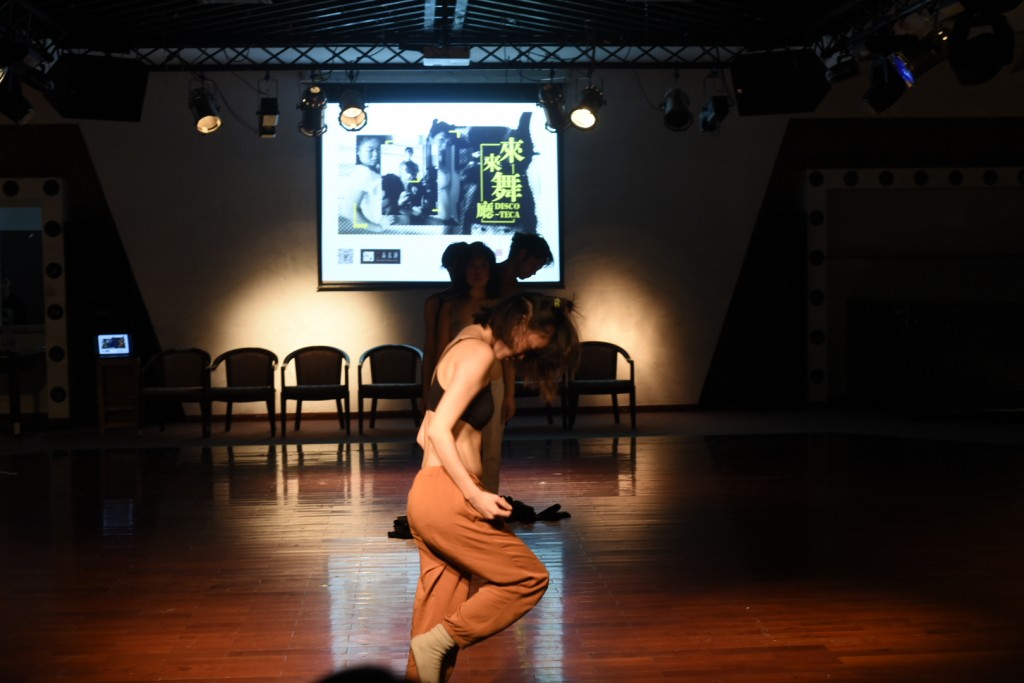
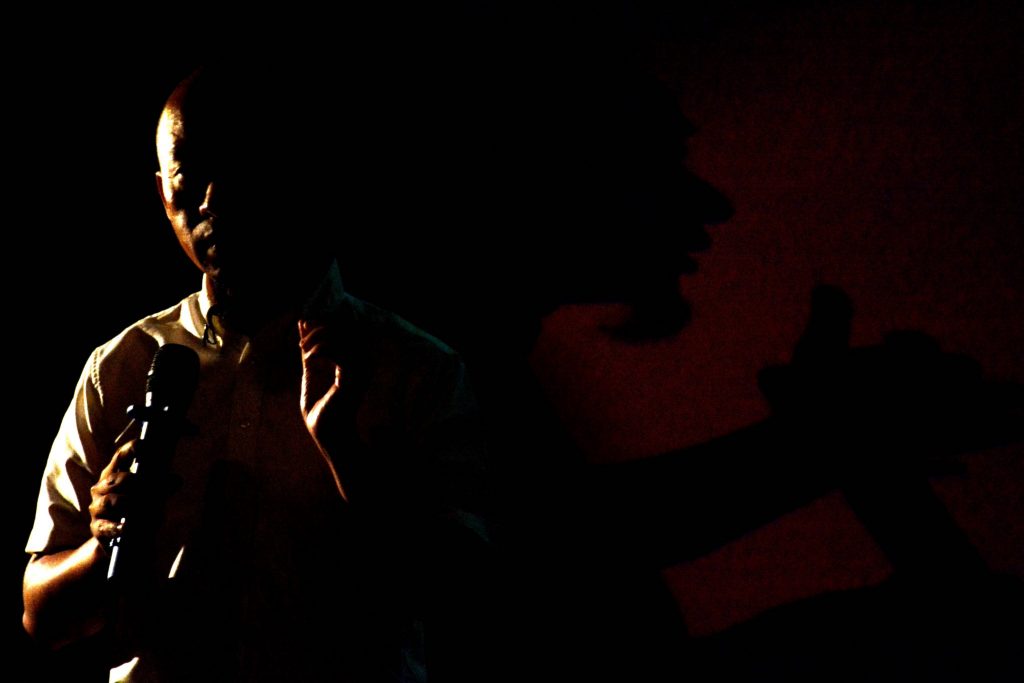
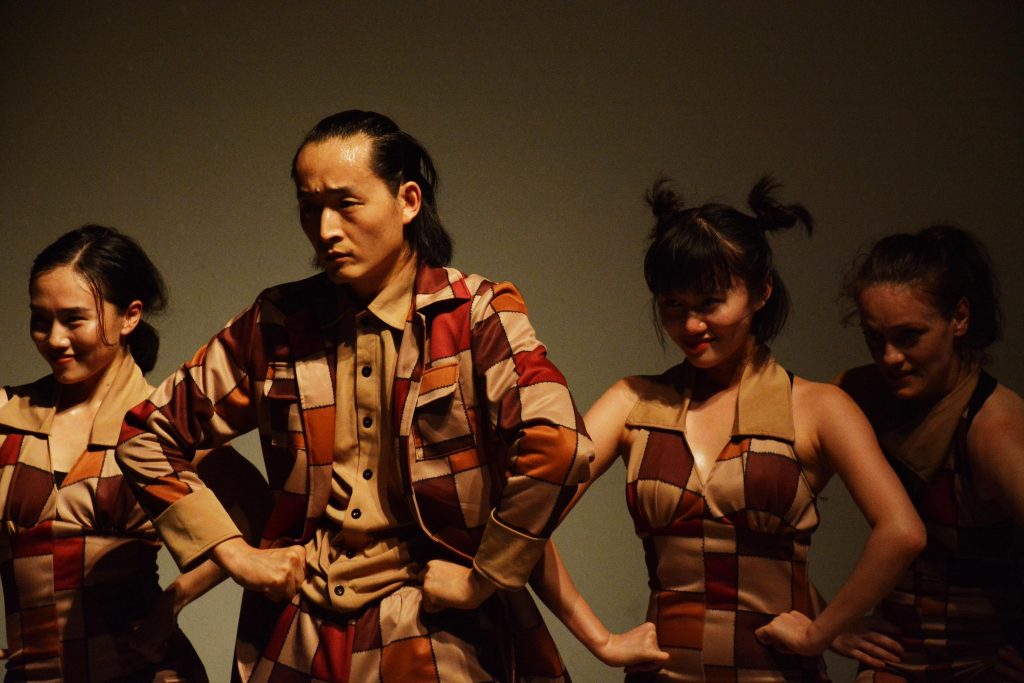
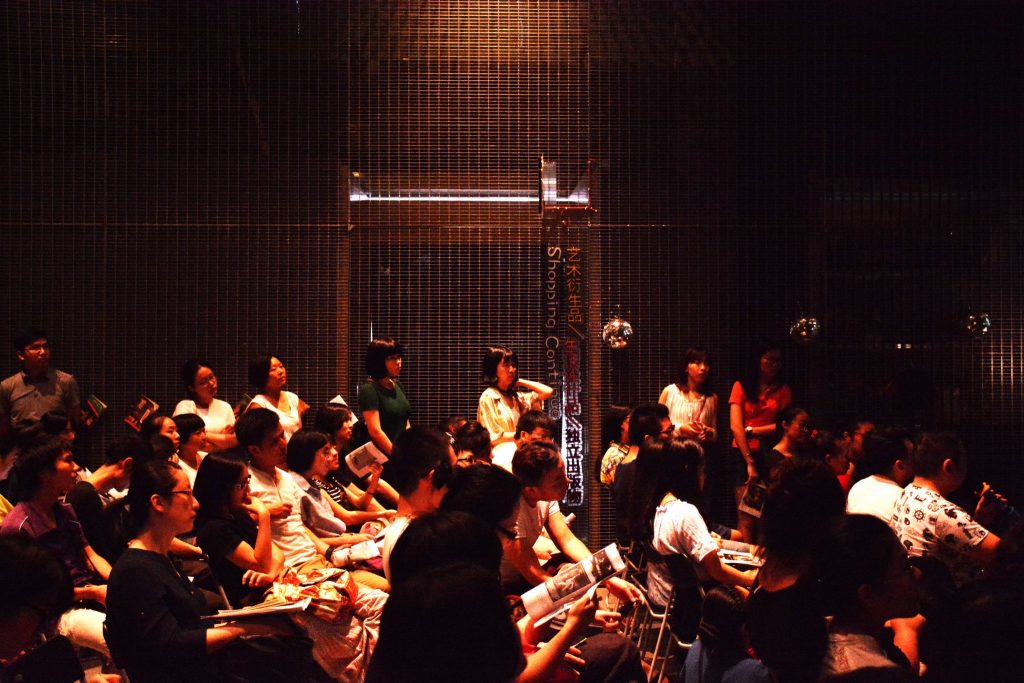
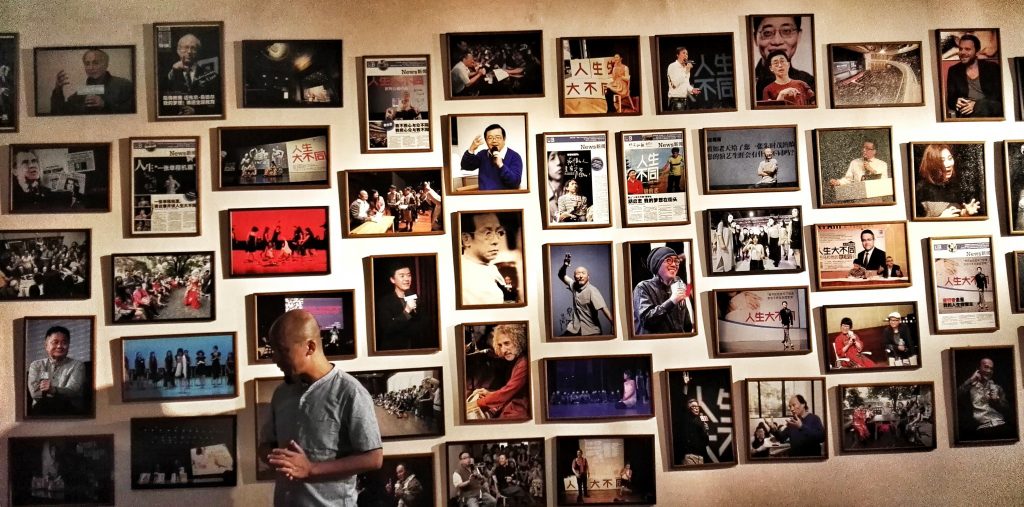
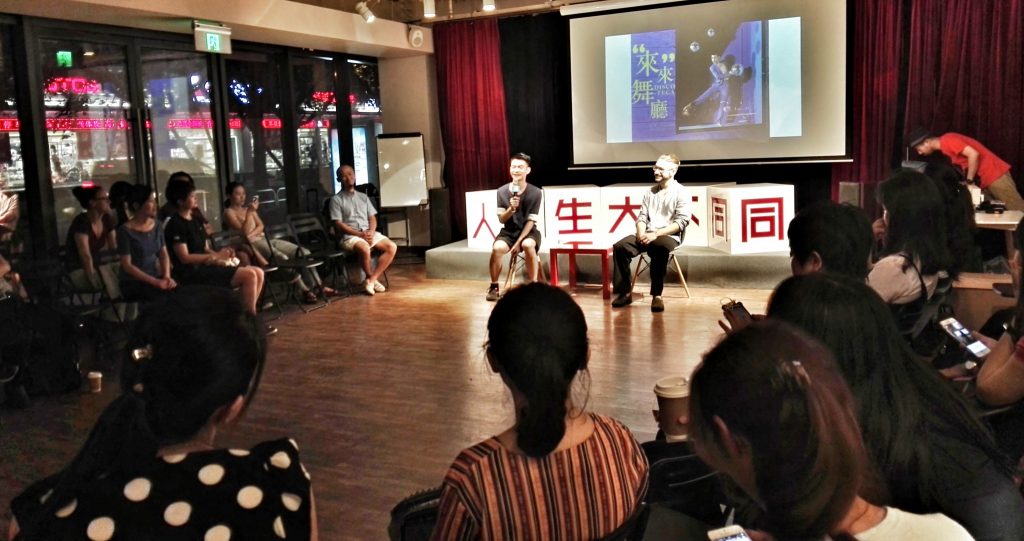
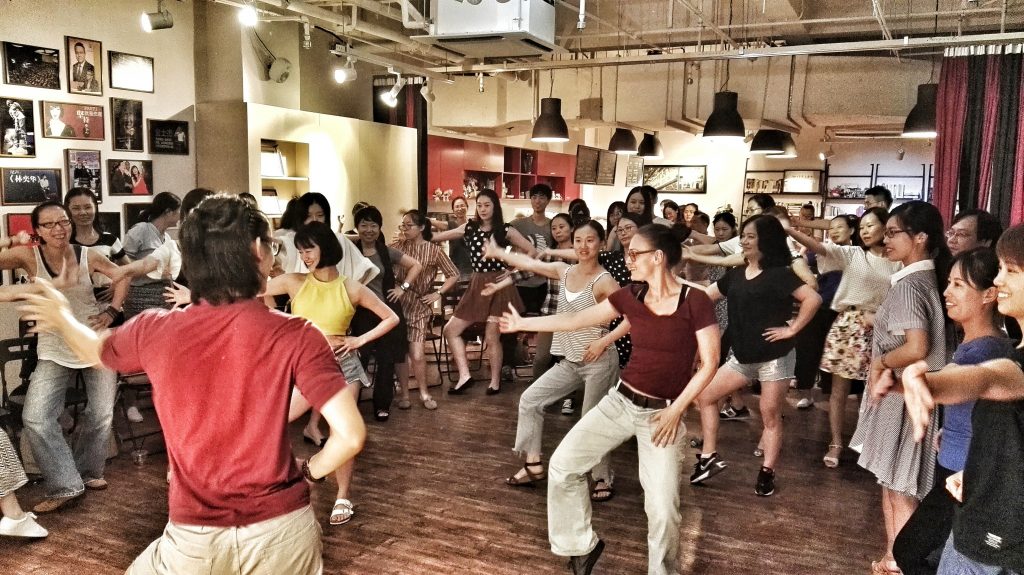
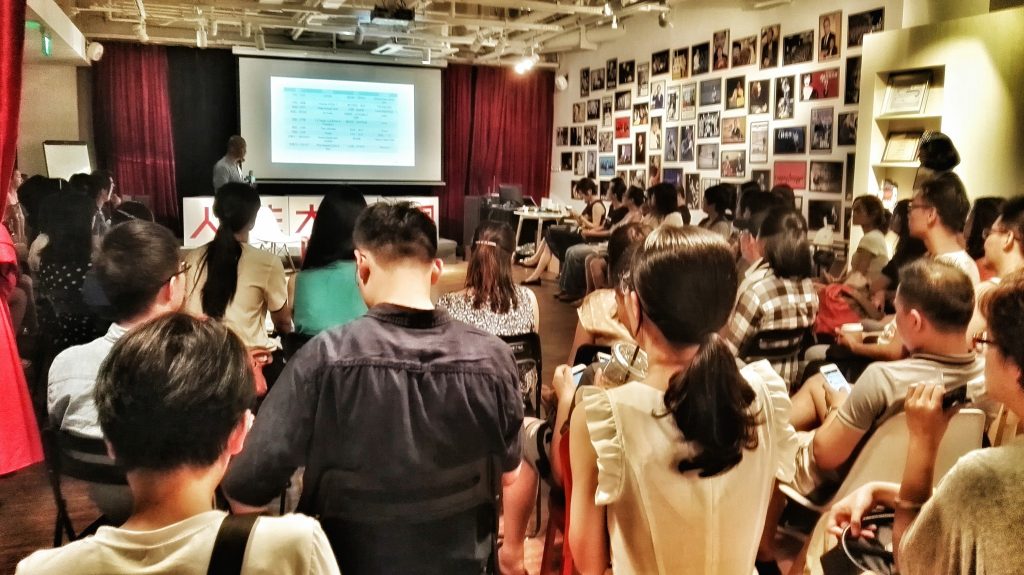
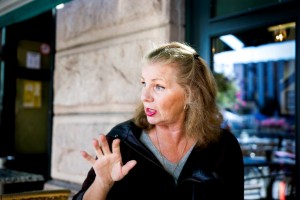
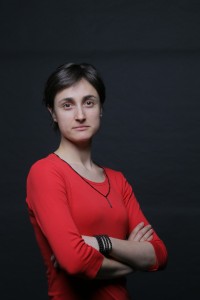 Boryana Trifonova – Acting Teacher
Boryana Trifonova – Acting Teacher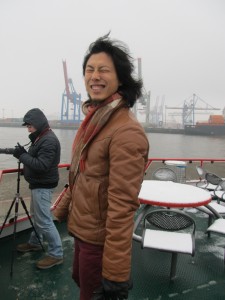 Liu Chao – Actor and Interpreter
Liu Chao – Actor and Interpreter 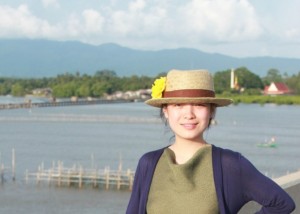 Zong Sijing – Actor and researcher T
Zong Sijing – Actor and researcher T